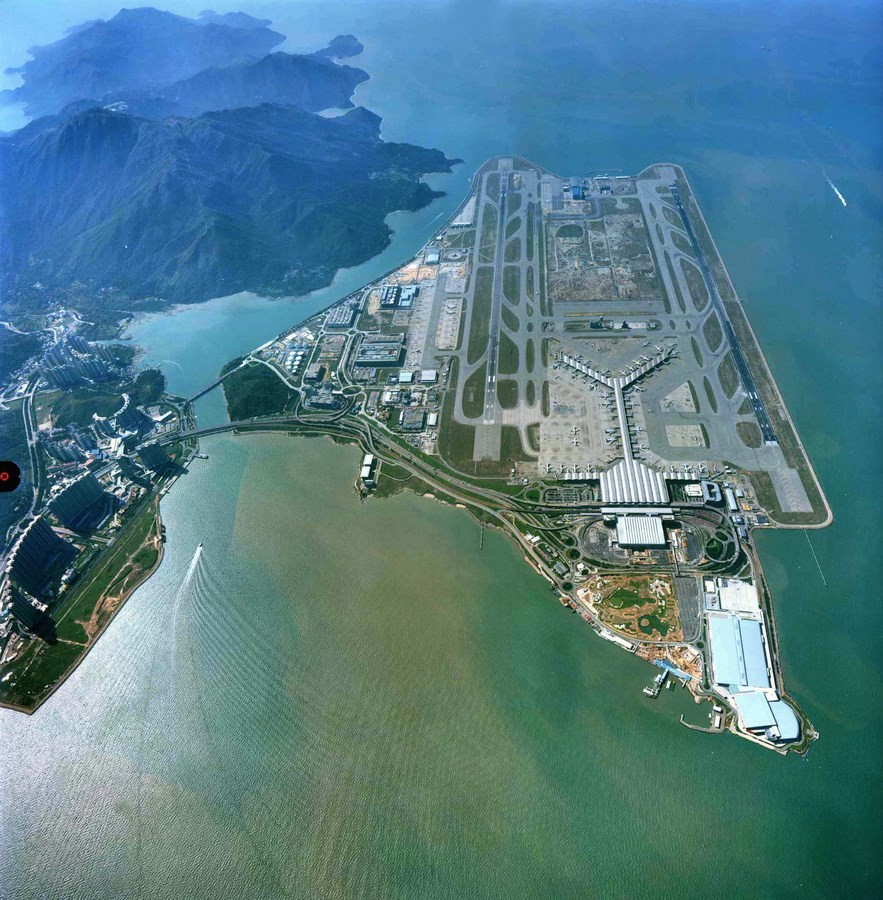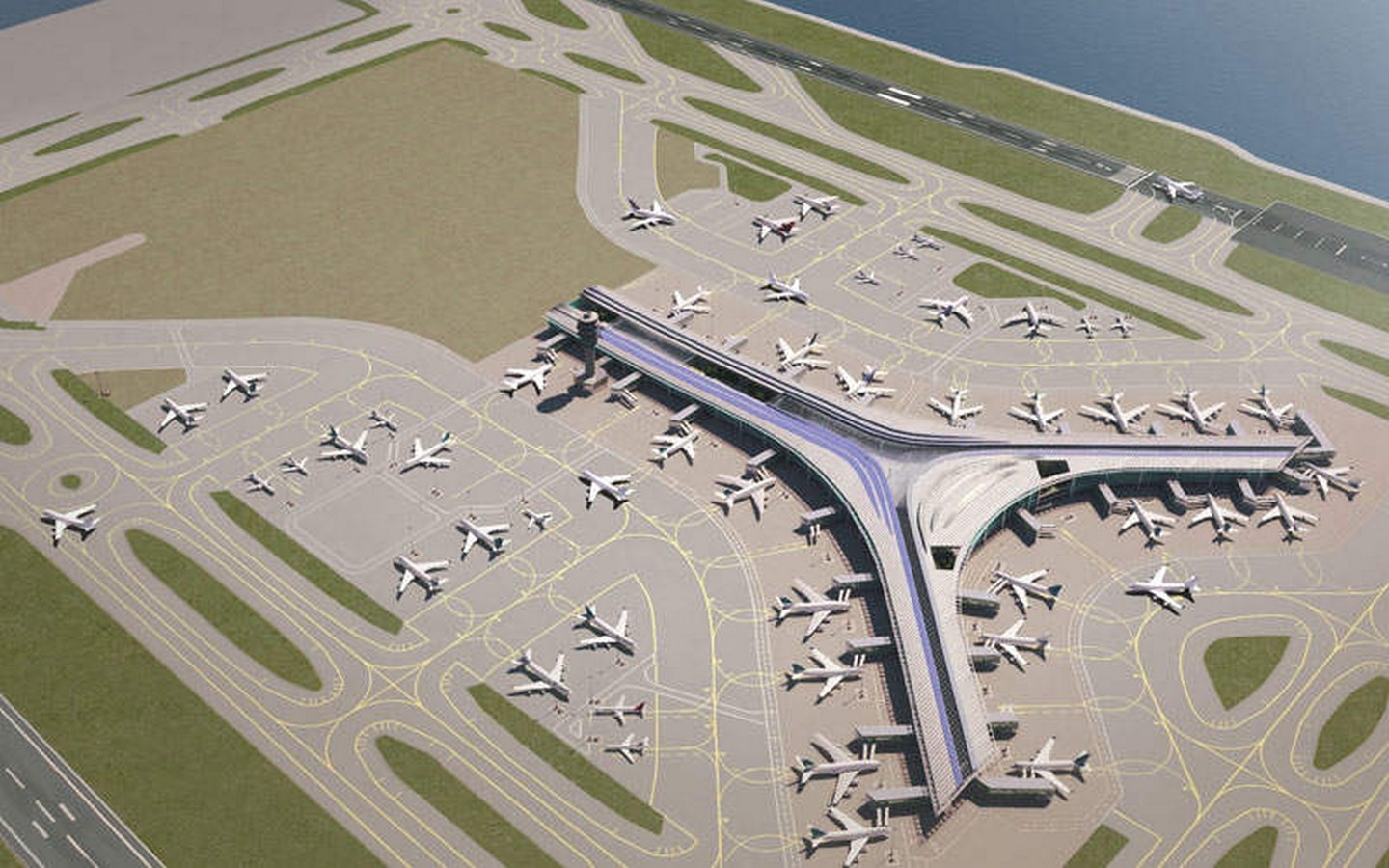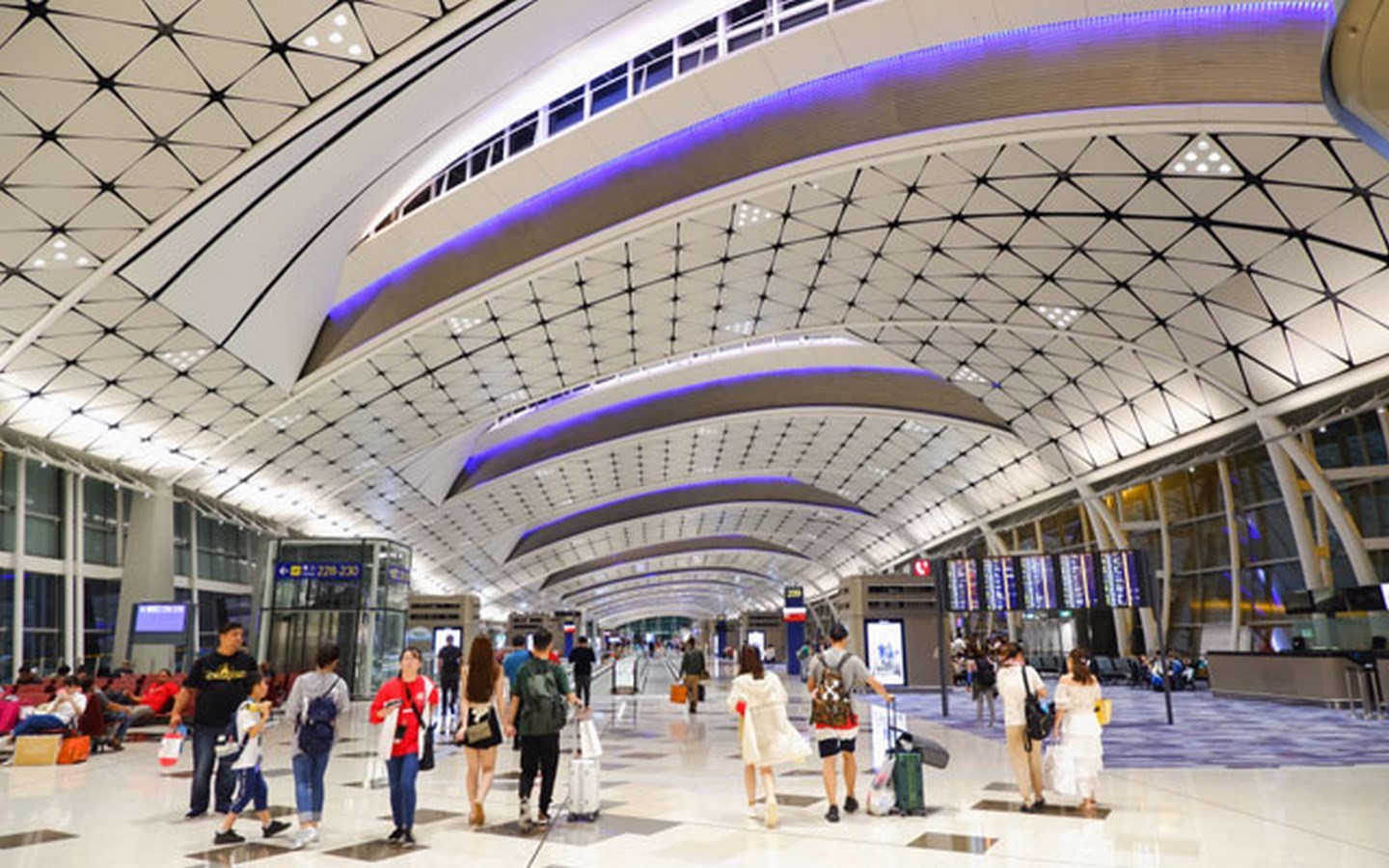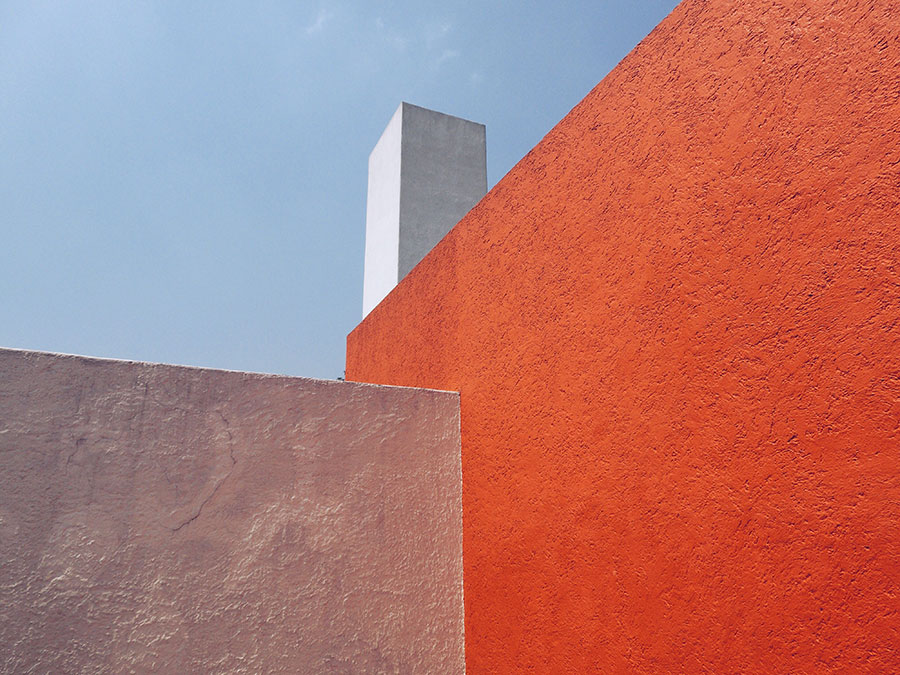“Design is not how it feels like or looks like, but is how it works.” – Steve Jobs
Humankind has continuously strived to push boundaries, be it with science, medicine, art, or architecture. We are challenging ourselves to design and execute some of the largest and breath-taking projects across the world. A once-impossible feat is now achievable due to incalculable advancements in building materials, techniques, and engineering.
Here are fifteen examples of extreme engineering around the world:
1. Three Gorges Dam
Location: Hubei Province, China
Status: Completed in 2012
Built over the Yangtze River in Hubei Province of China, Three Gorges Dam is considered the world’s largest hydropower project spanning 2,335m in length and 185m in height. The dam consists of 28 million cubic meters of concrete and 5,10,000 metric tons of steel. It is massive enough to shift the mass on earth and increase the length of the day by 0.06 microseconds.
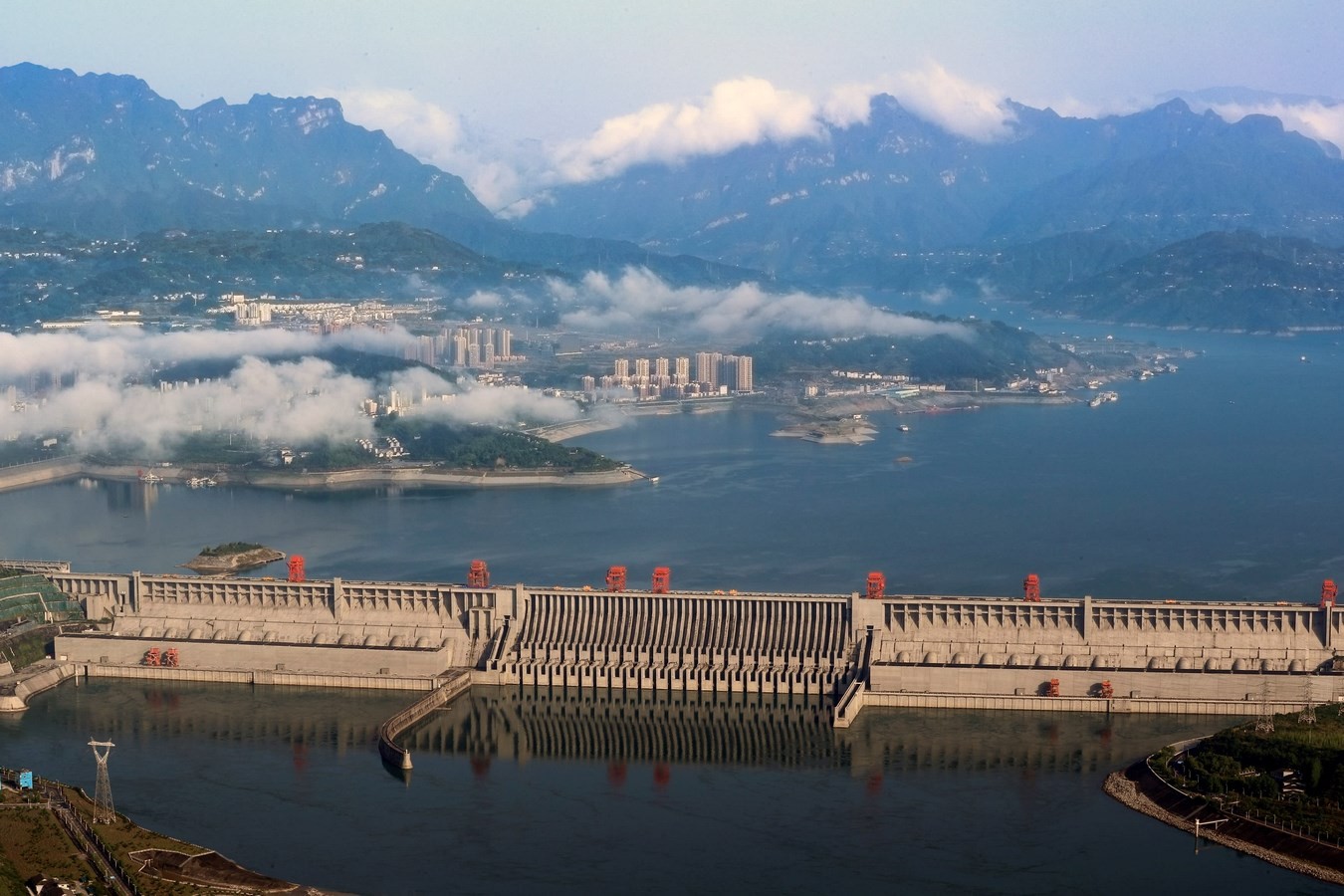
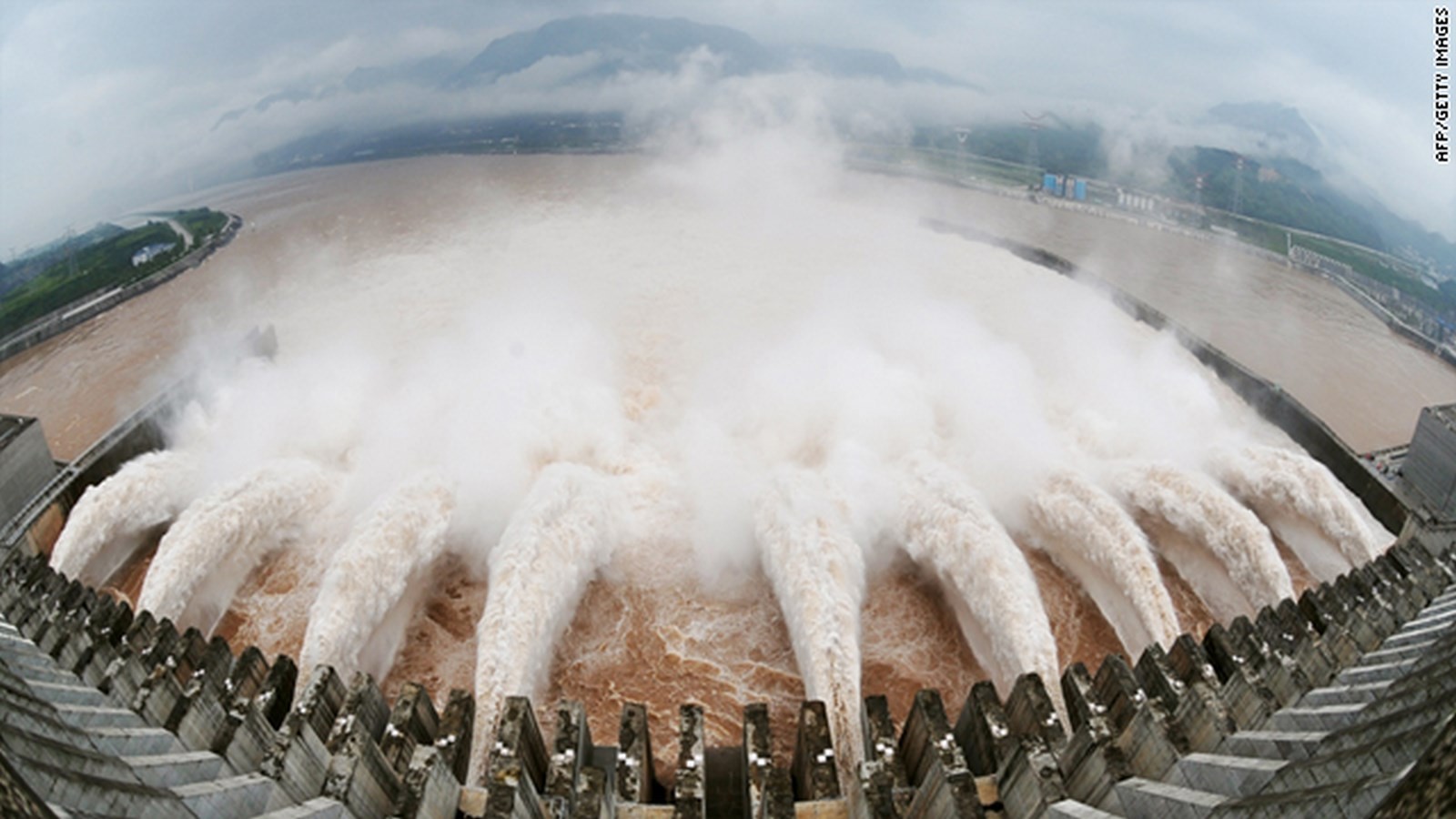
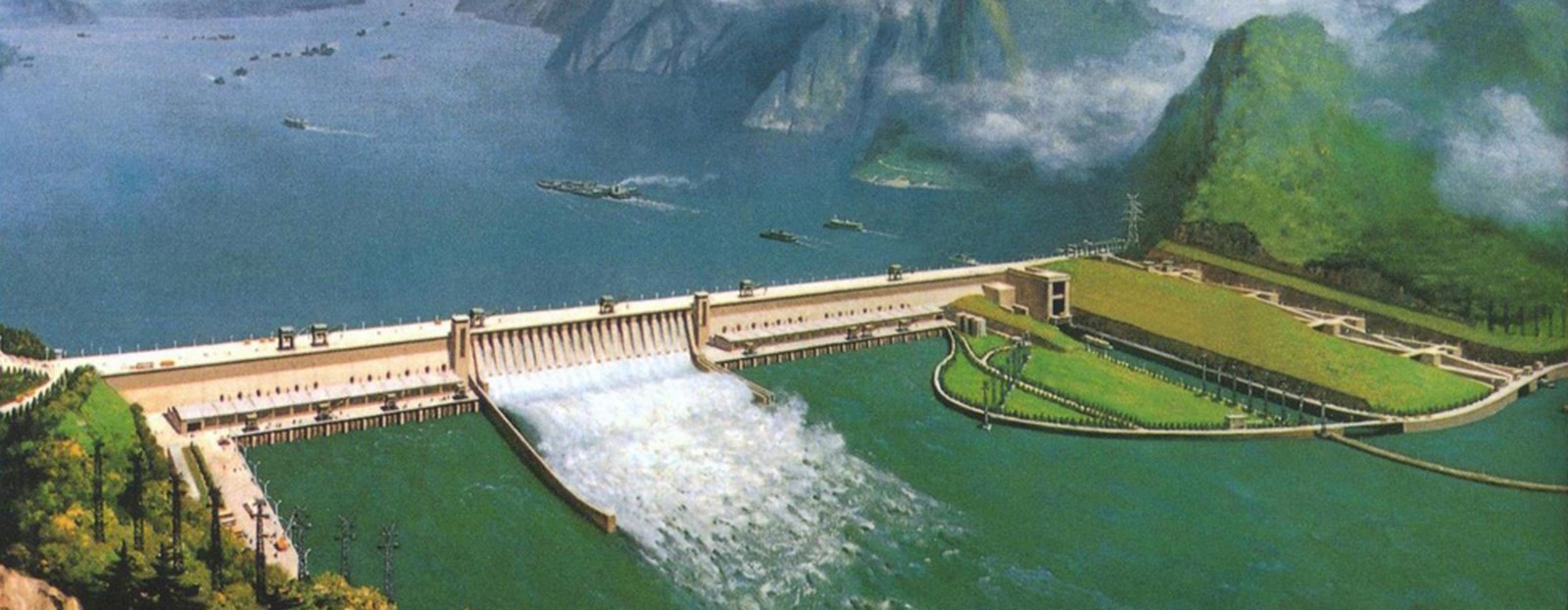
2. Öresund Bridge – “The Disappearing Road”
Location: Denmark
Status: Completed in 1999
One of the lesser-known wonders is the Öresund Bridge, connecting Sweden and Denmark. The bird’s eye view of the bridge reveals a bizarre construction.
The bridge’s roadway dips down beneath the water, literally disappearing into the ocean! The road descends into the Grodgen Tunnel that runs underwater for around two and a half miles.
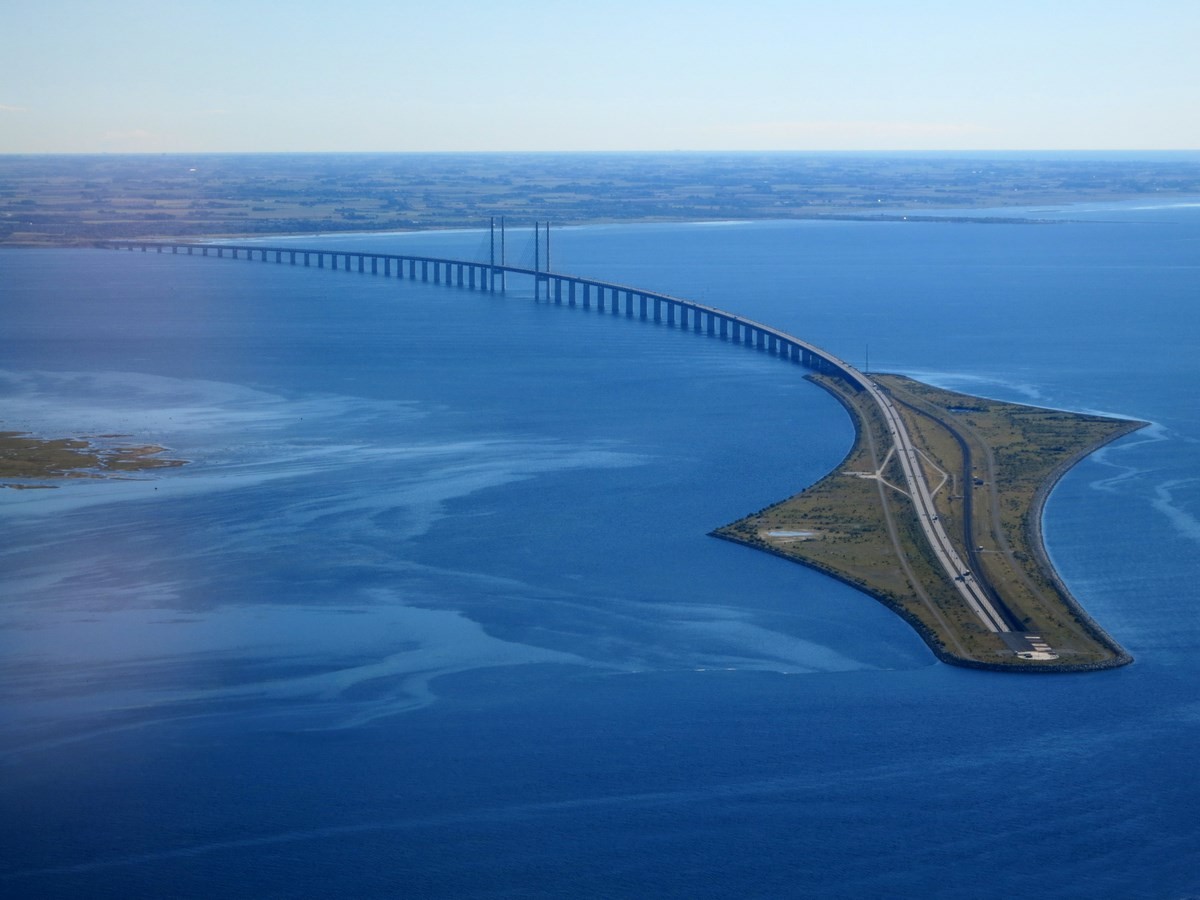
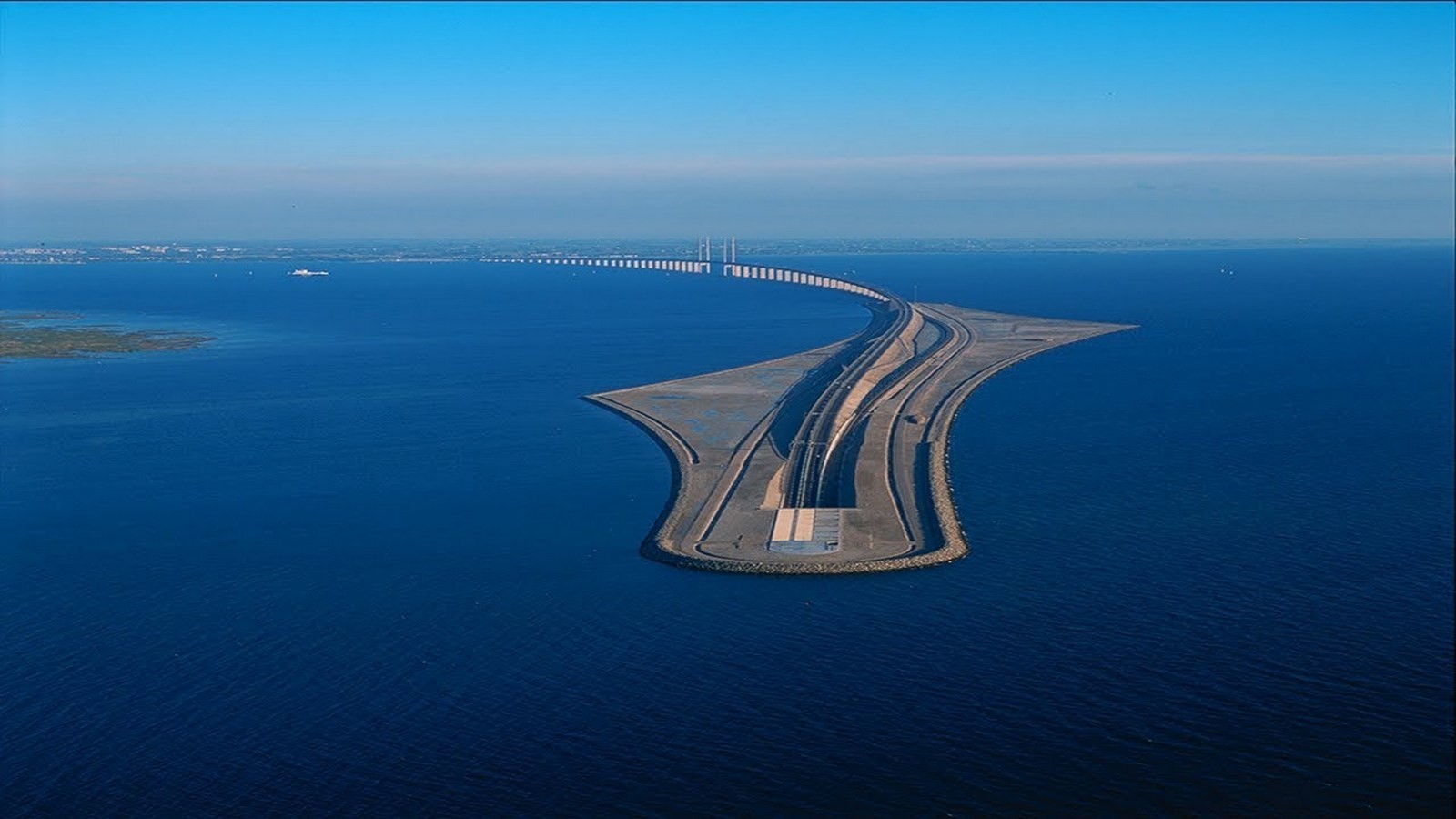
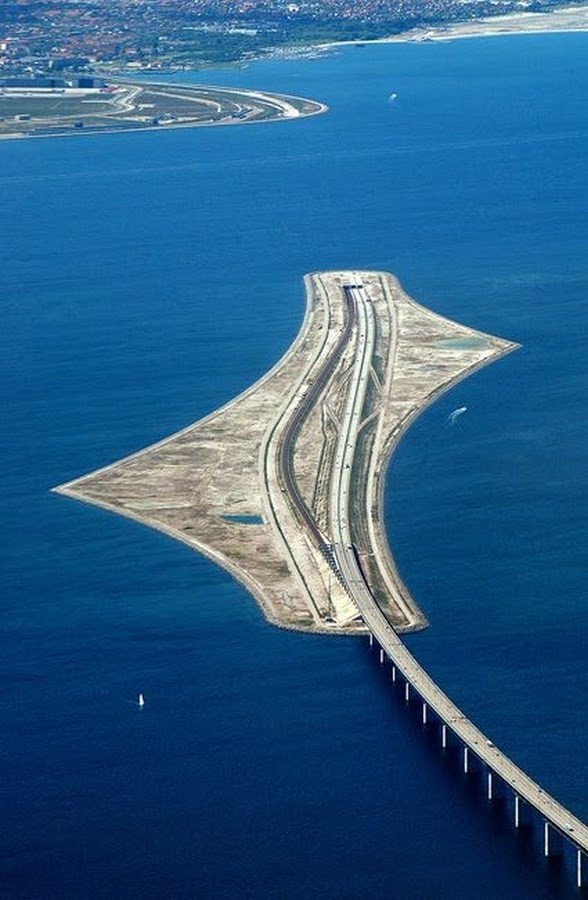
3. Gotthard Base Tunnel
Location: Switzerland
Status: Completed in 2016
The geographical barrier formed by the Alps across Europe led to the construction of the world’s deepest railway tunnel buried under 2,300m of rocks. The surveyors also achieved a near-perfect construction, with a small 8cm deviation horizontally across the length of the tunnel.
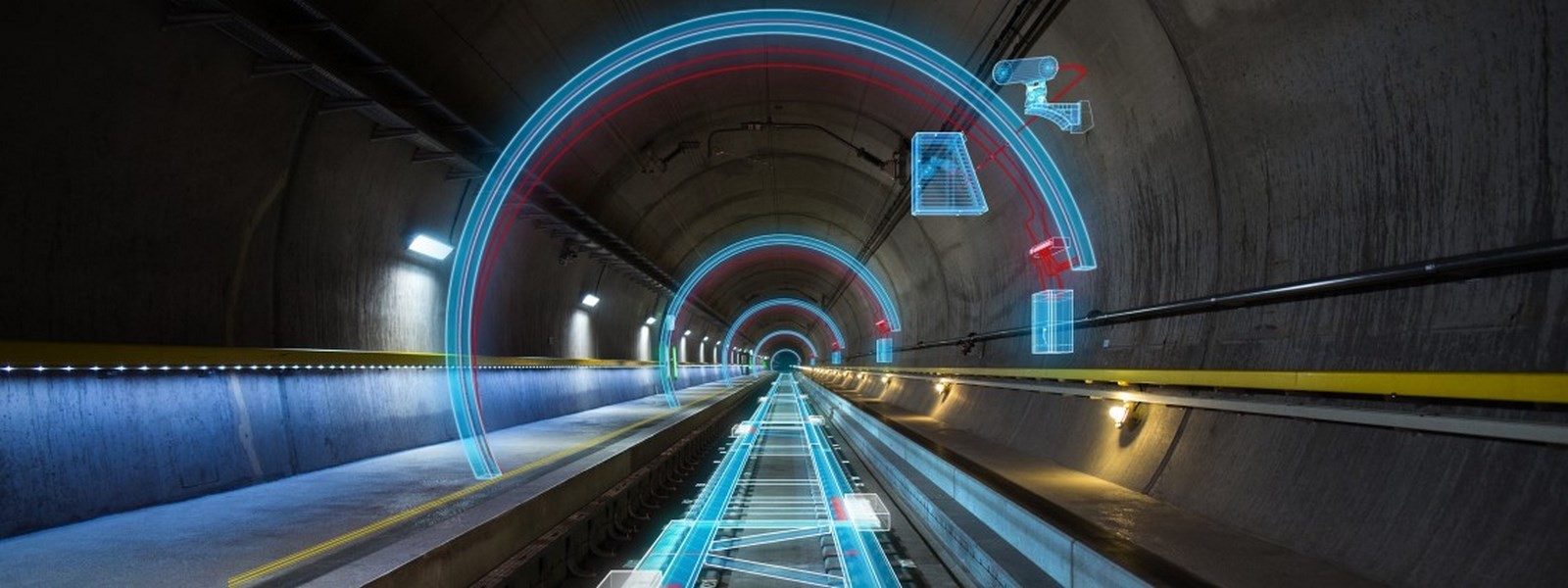
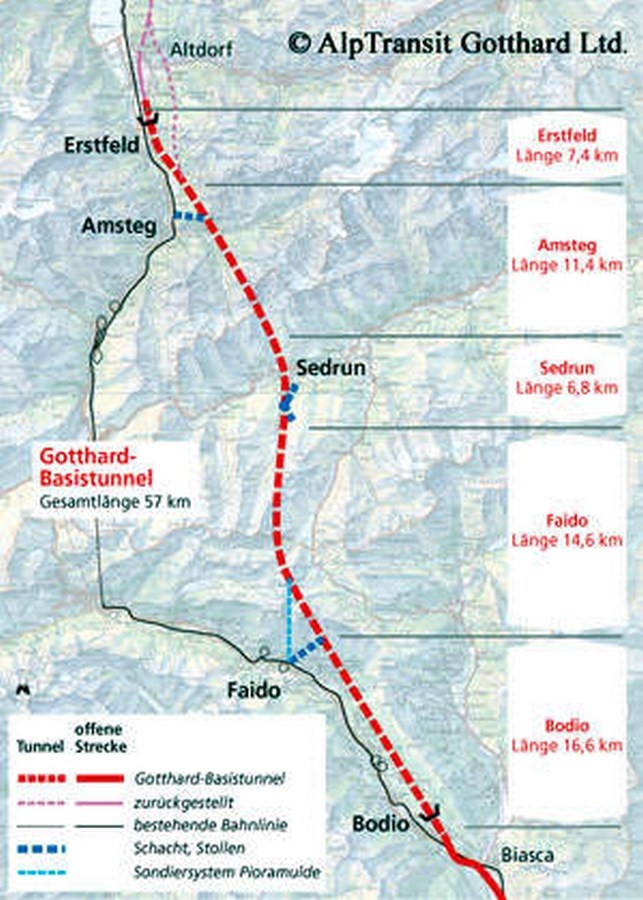
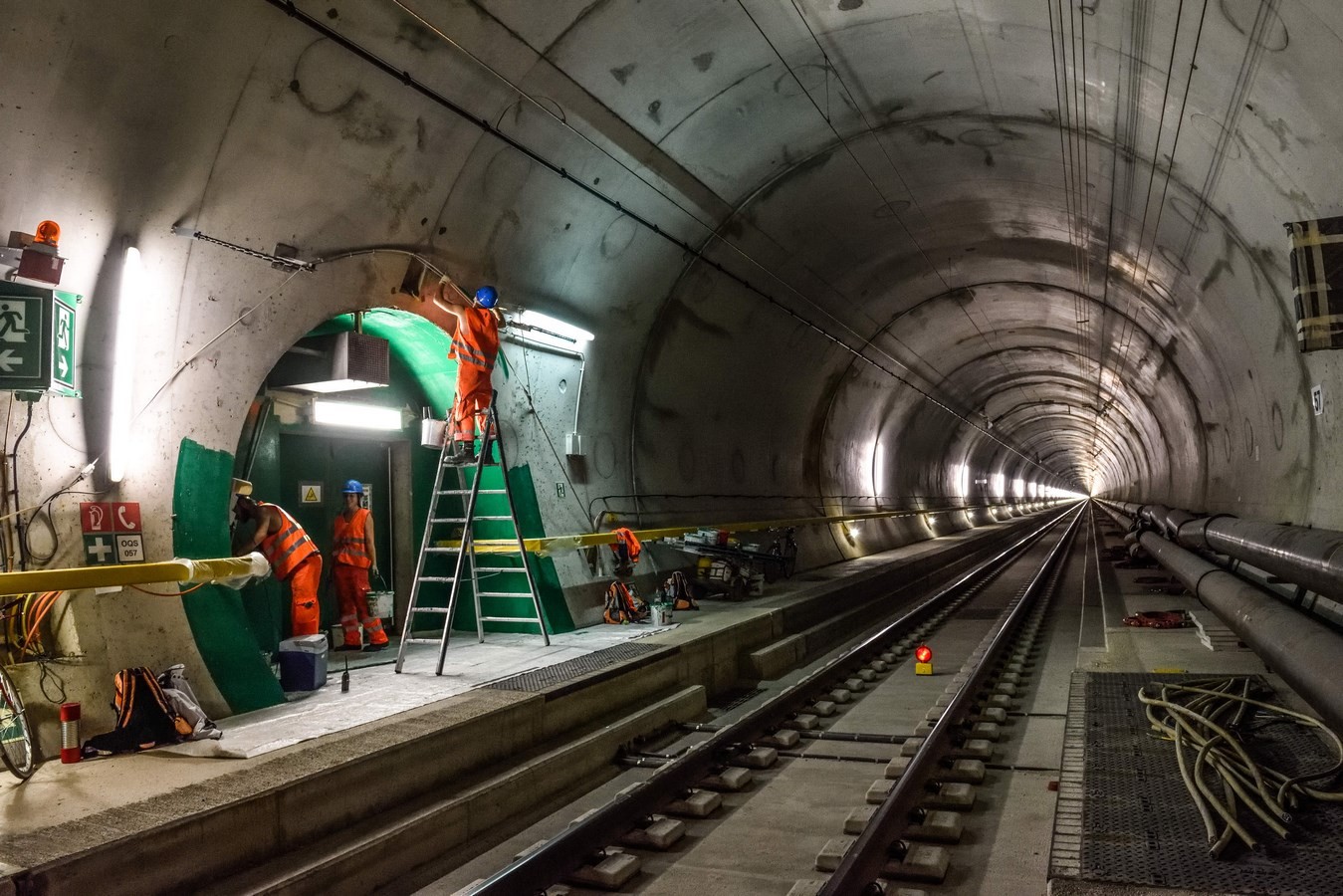
4. IHNC Lake Borgne Surge Barrier
Location: New Orleans
Status: Completed in 2013
Termed as the “Great Wall of Louisiana,” the storm surge barrier is deemed the most prominent public works project undertaken in the US. It forms a 133-miles long enclosure around the city and reaches 150 ft deep into the waters. The barrier consists of 1,271 concrete piles, each being 44m long, 1.7m in diameter, and weighing 96 tonnes.
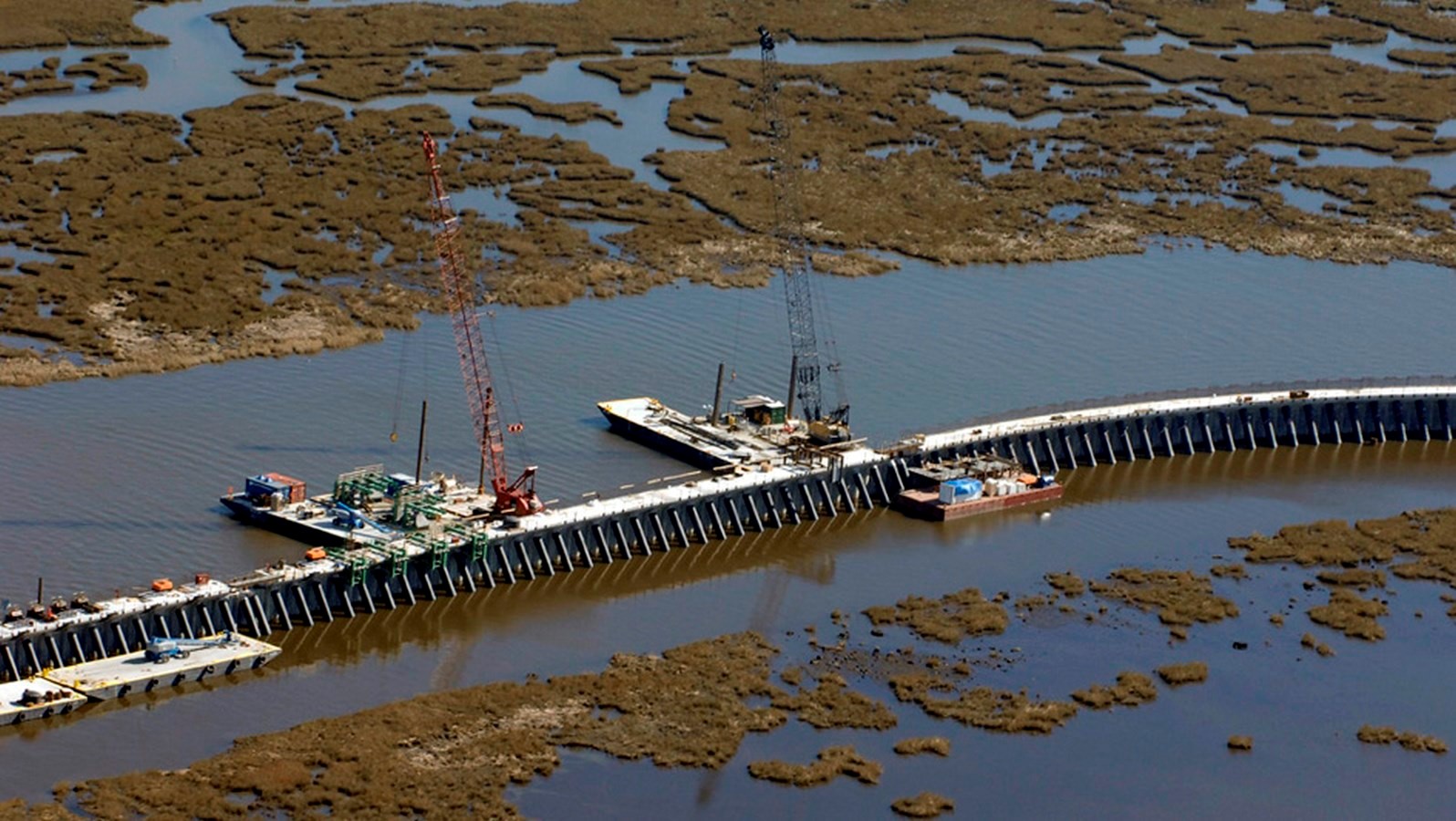

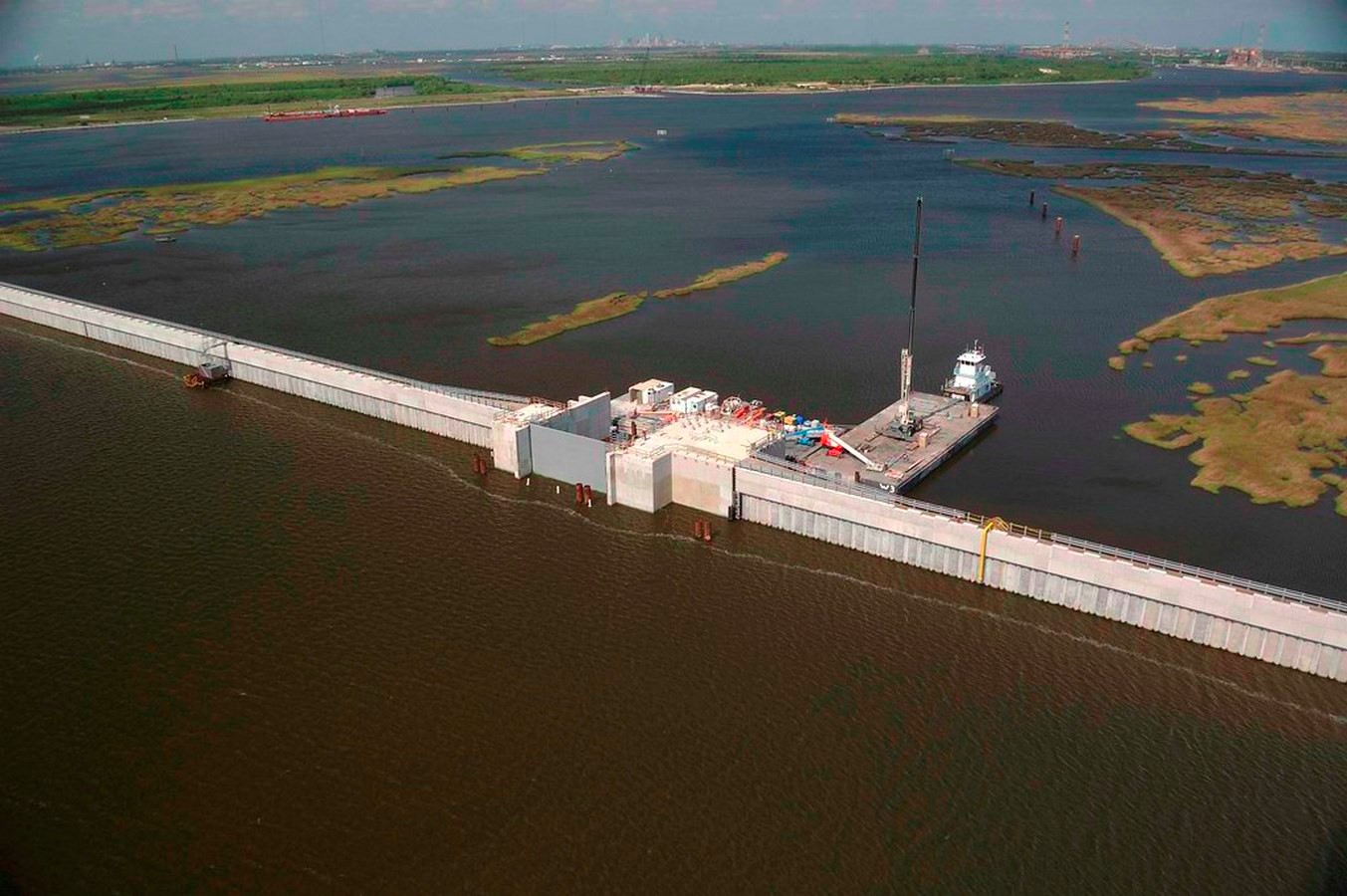
5. Akashi Kaikyo Bridge
Location: Japan
Status: Completed in 1998
With a length of almost 4km, the Akashi Kaikyo Bridge is the world’s longest suspension bridge spanning between Kobe Island and Awaji Island. The bridge is built to endure earthquakes up to 8.5 on the Richter scale. It used up to 3,00,000 km of cabling during its construction.



6. Kailasa Temple
Location: Ellora, India
Status: Completed between 600 and 1000 CE
The 100ft high megalithic, carved from a single volcanic basaltic stone temple is the only structure in the world sculpted from top to bottom. The chiseling started at the top of the Gopura and proceeded downwards with artisans using just hammers, chisels, and picks.
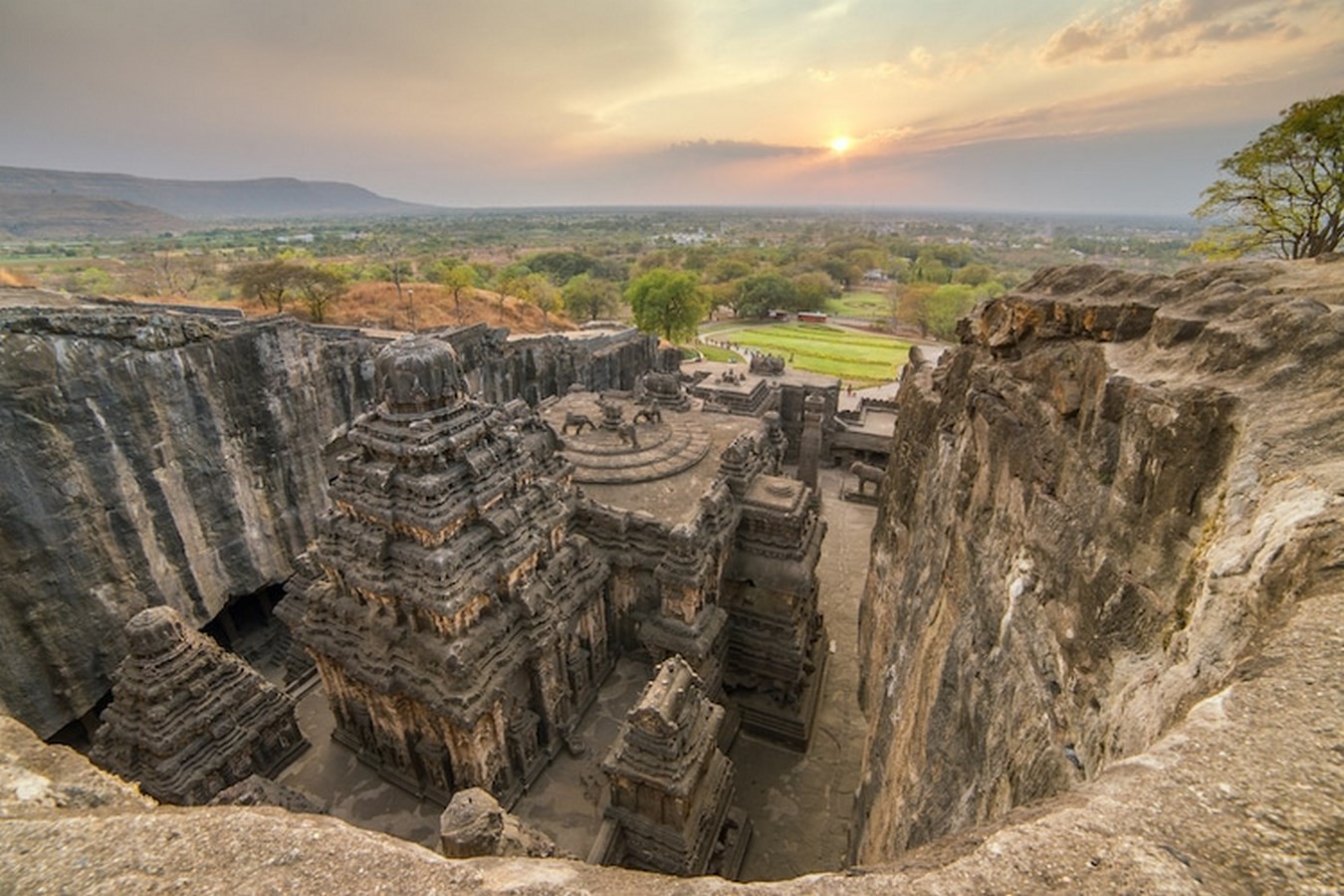


7. Bailong Elevator
Location: China
Status: Completed in 2002
Zhangjiajie National Forest Park is well known for its magnificent natural sandstone pillars rising to heights of 3,000 ft. Attached to one of these pillars is the world’s tallest outdoor lift reaching a height of 1099 ft. It takes about 1 minute and 32 seconds to reach the topmost point.
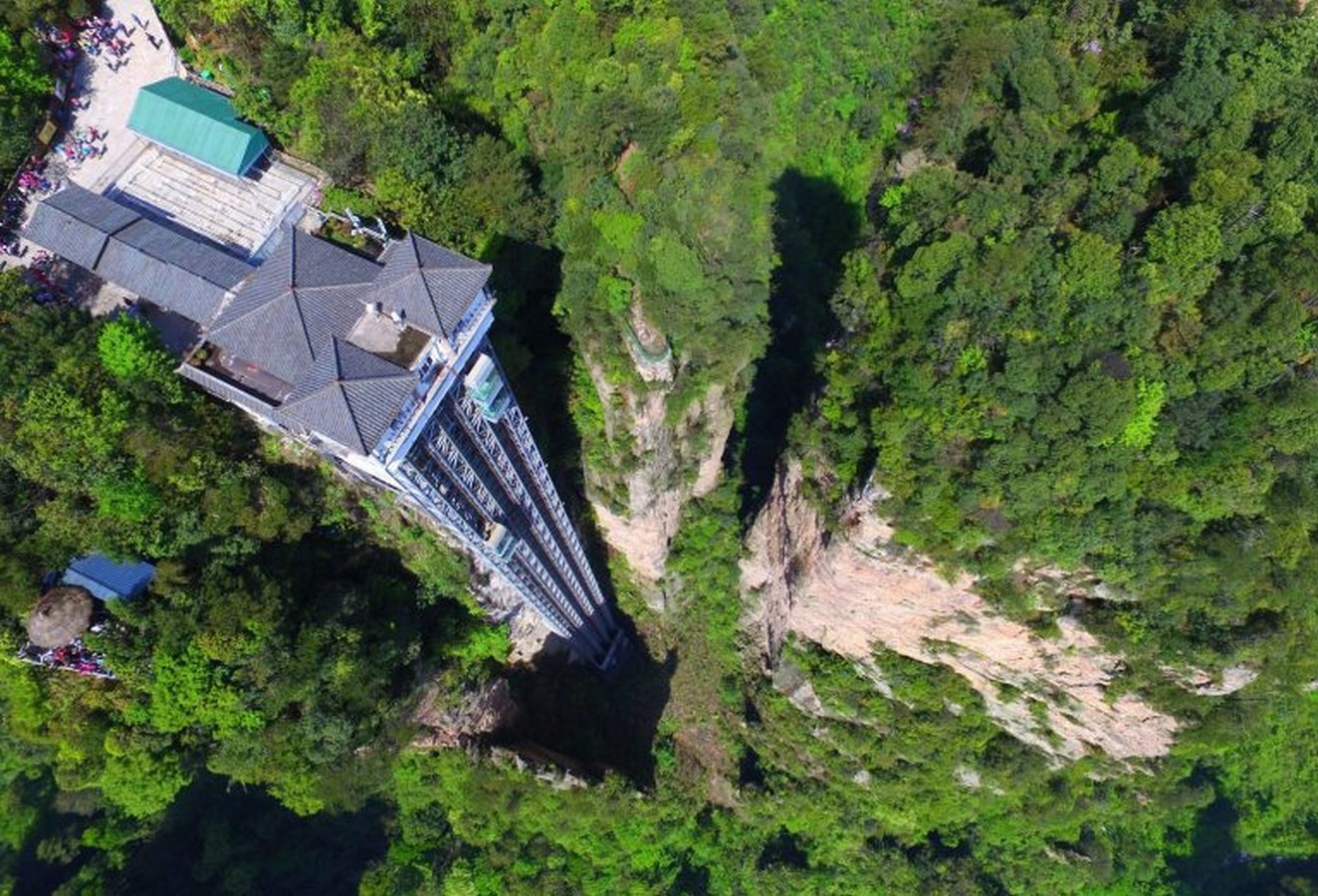
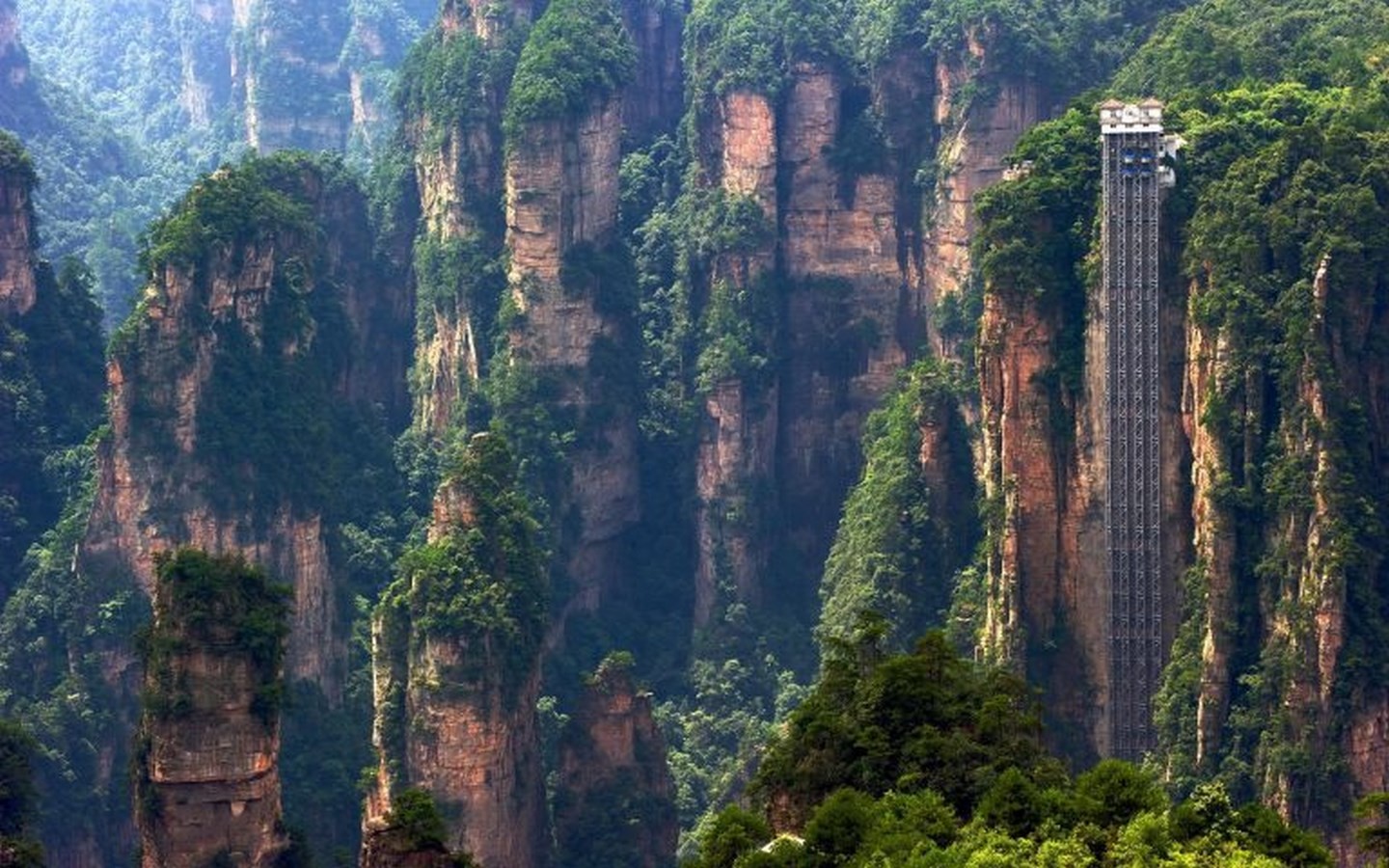
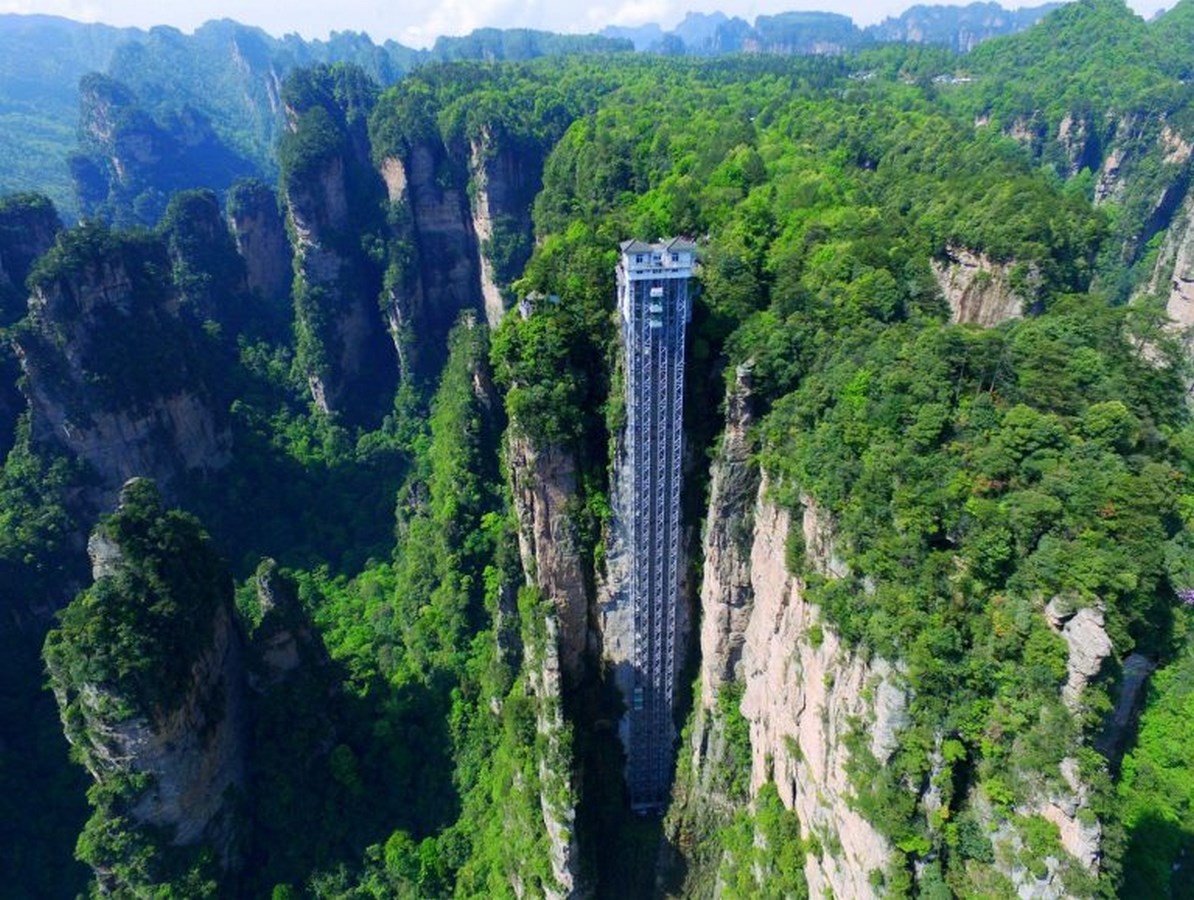
8. Mercedes Benz Stadium
Location: Atlanta
Status: Completed in 2017
The stadium boasts a fascinating form with a retractable roof made of lightweight polymer, consisting of eight triangular “petals”. Each moving petal cantilevers up to 200 ft into the center of the stadium. Although the roof may appear to rotate to open, it is merely an optical illusion, and the petals slide open in a straight line.
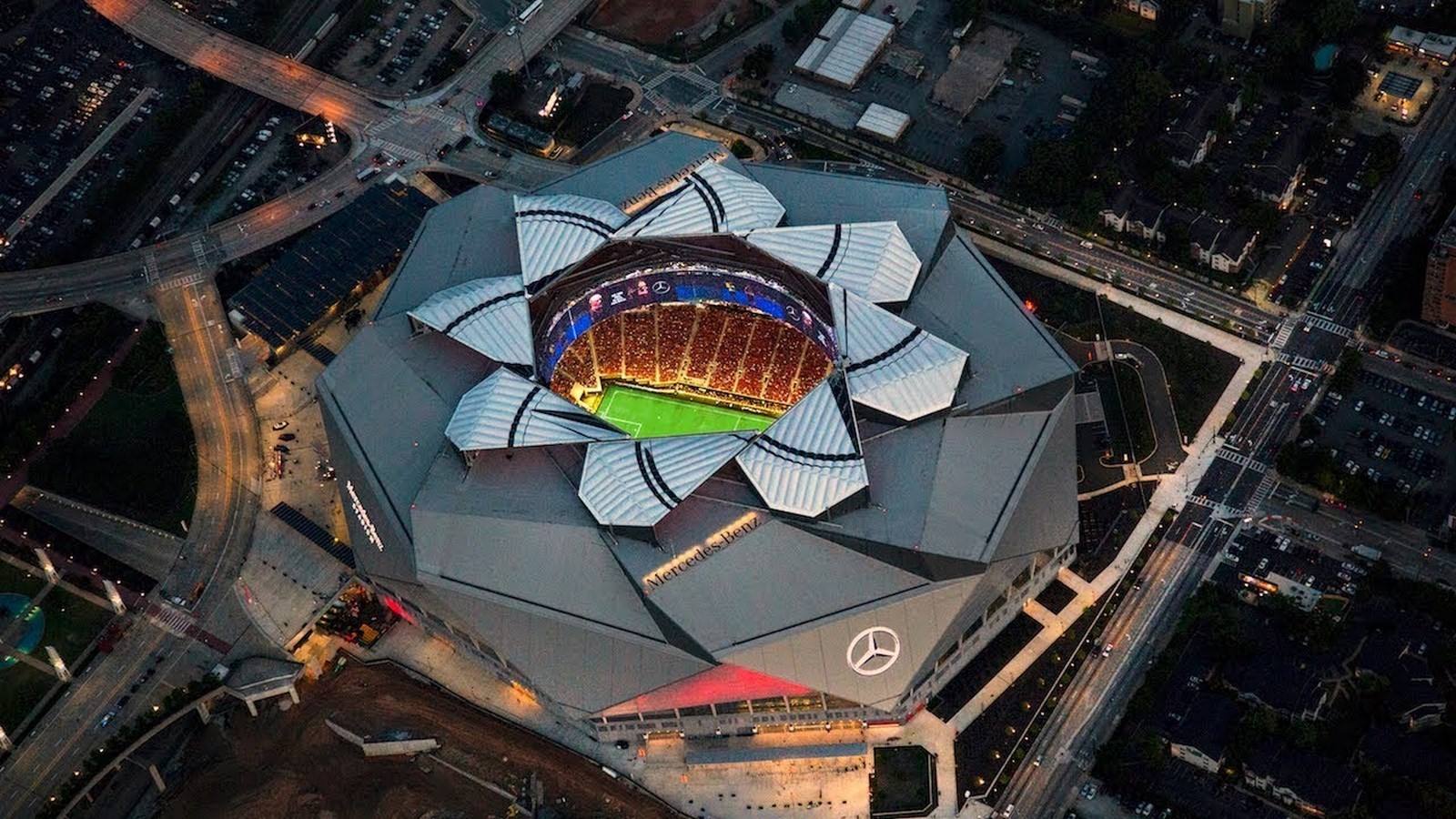


9. Jinping Underground Laboratory
Location: Sichuan, China
Status: Completed in 2010
Built around 2,400m under a mountain, the Jinping Underground Laboratory is the world’s deepest underground lab. Scientists use this laboratory to detect dark matter, owing to the lab’s near-perfect shield from background radiation. The construction pushed for engineering advancements in order to carve through hard rock marble.
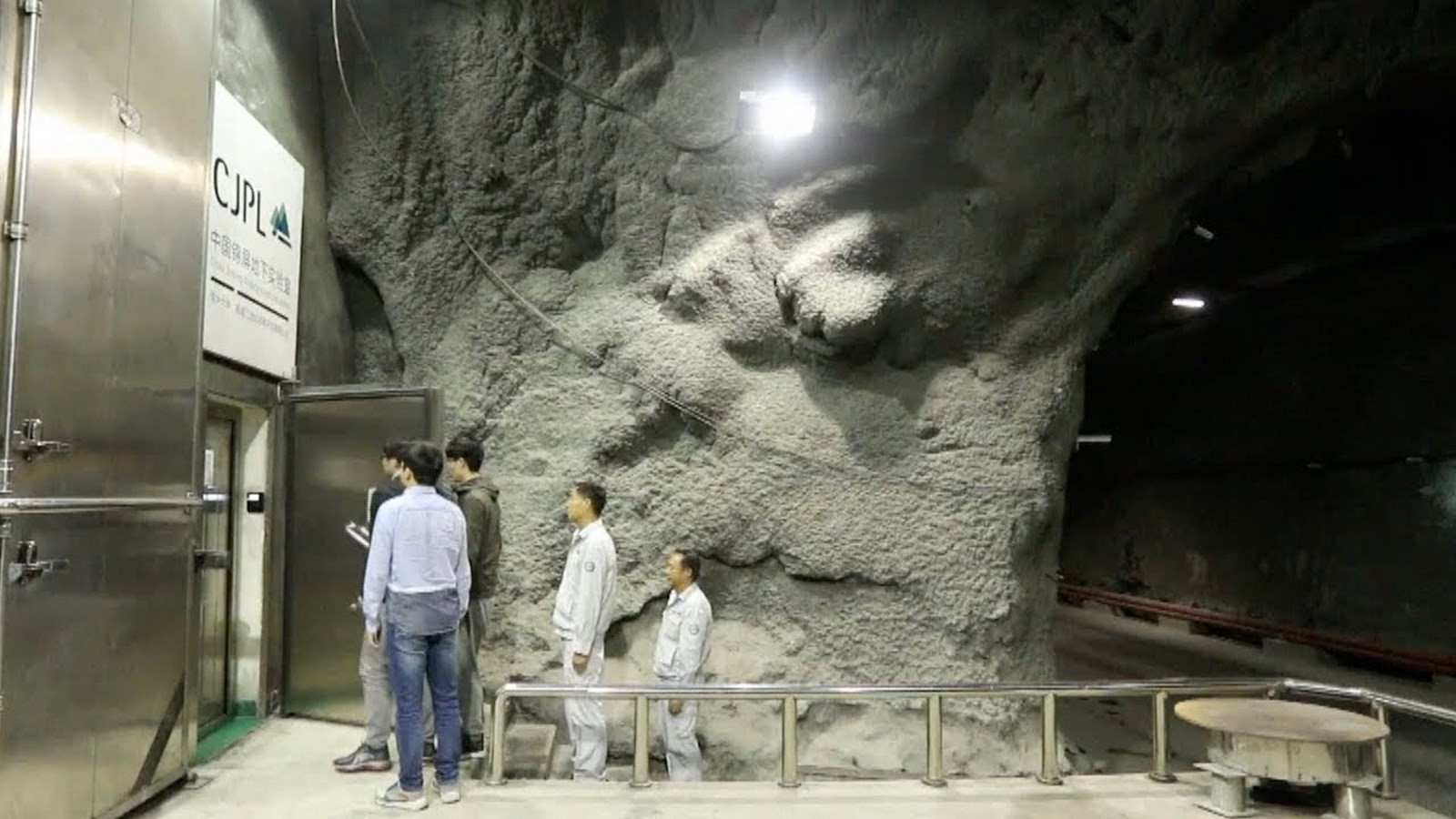

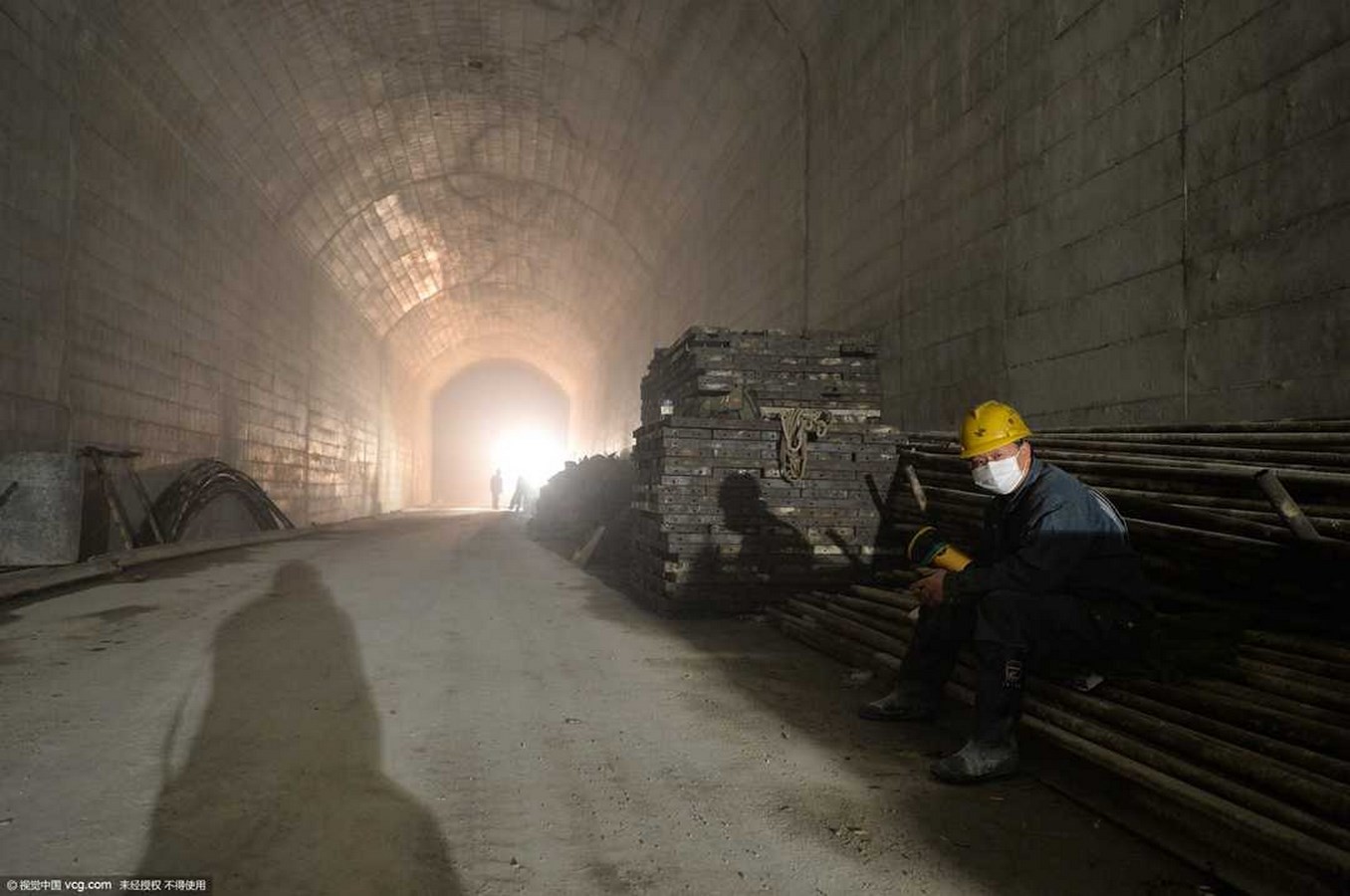
10. The Mars Habitat
Location: Mars
Status: Proposed
NASA launched a competition to explore habitation on Mars, known for its harsh environment and deadly radiations. That is when Eckersley O’Callaghan engineered a 3-D printed shell constructed entirely by automated robots. The building material will be sourced from the planet’s natural rigolet. Once the shell is complete, astronauts will be able to create the interiors using inflatable habitation units.
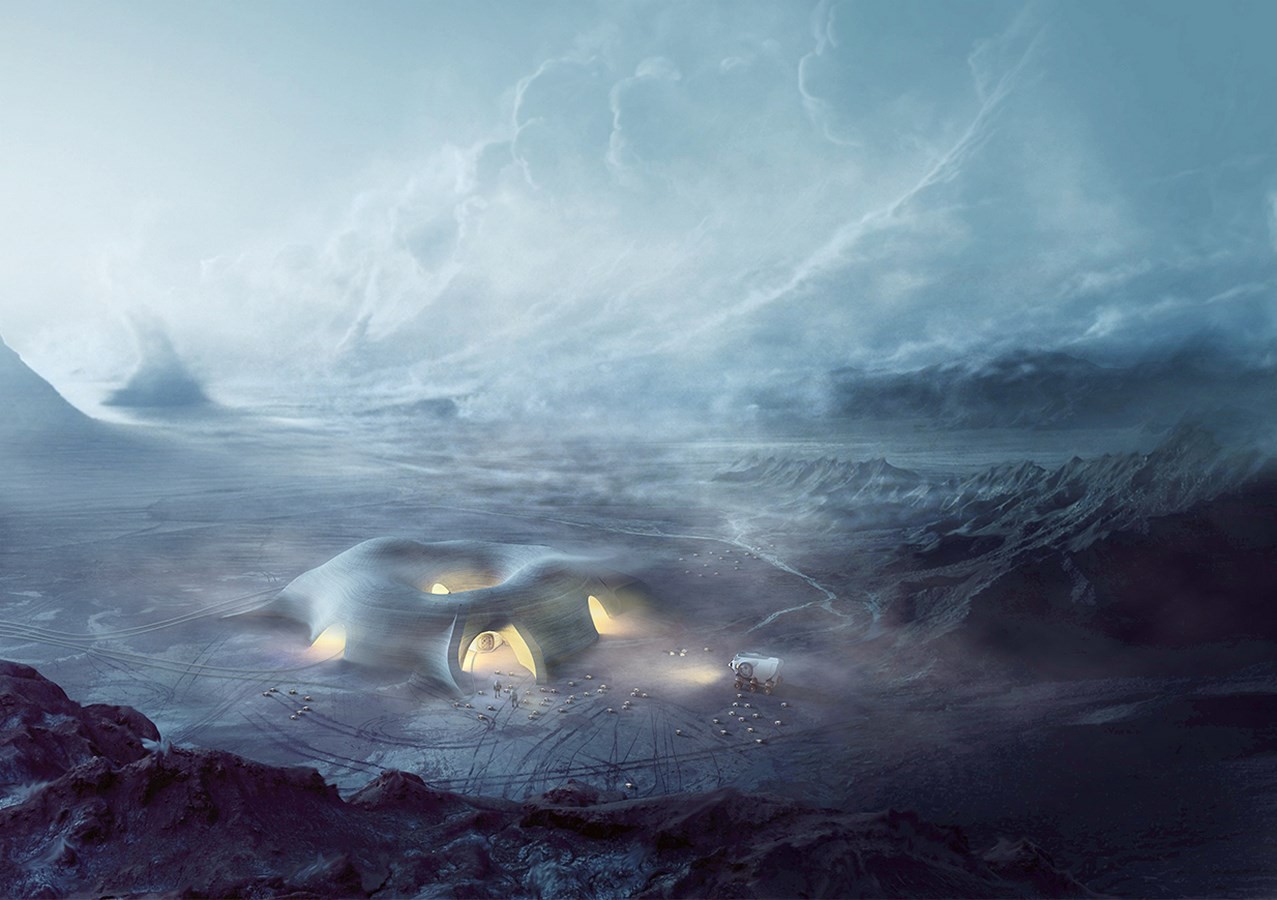
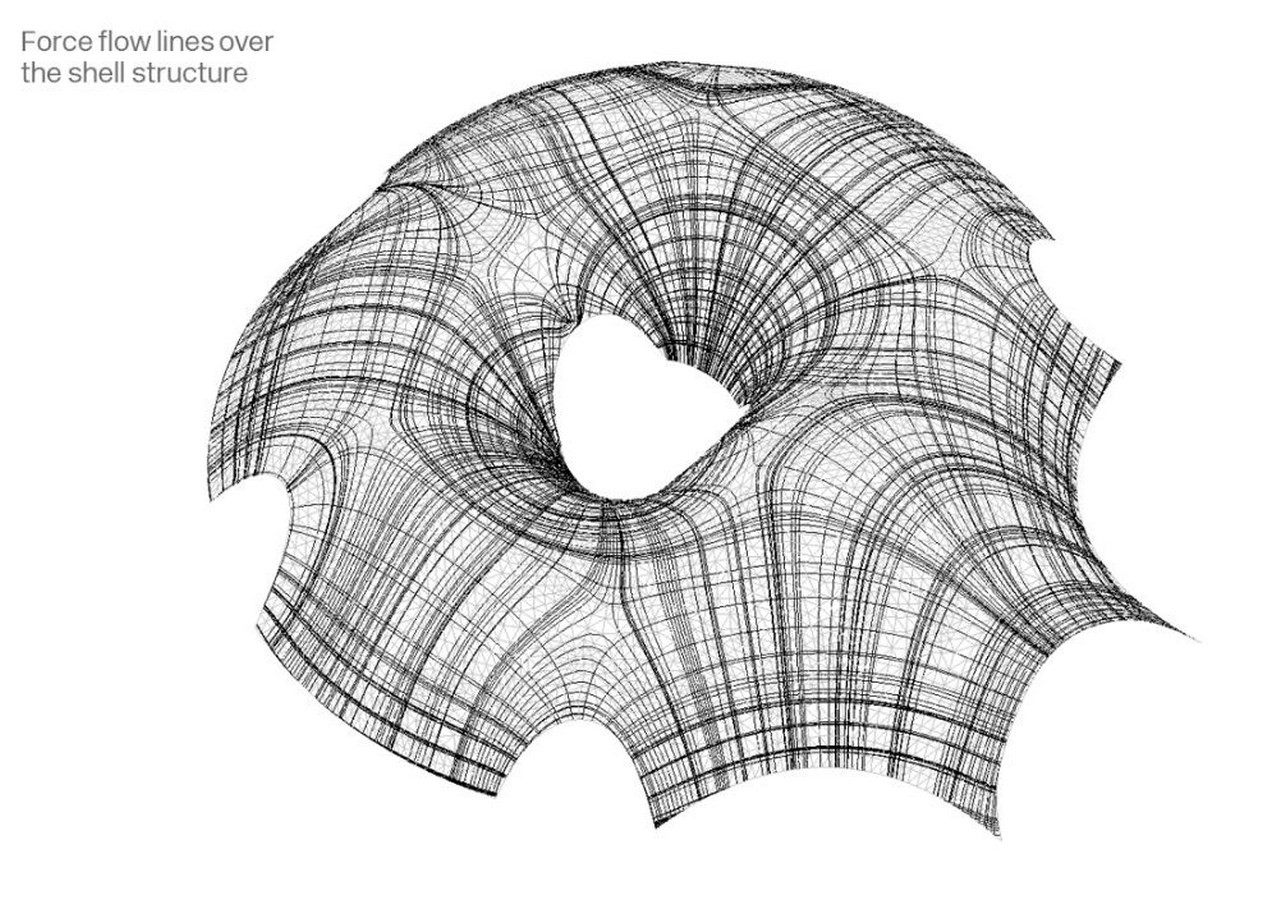
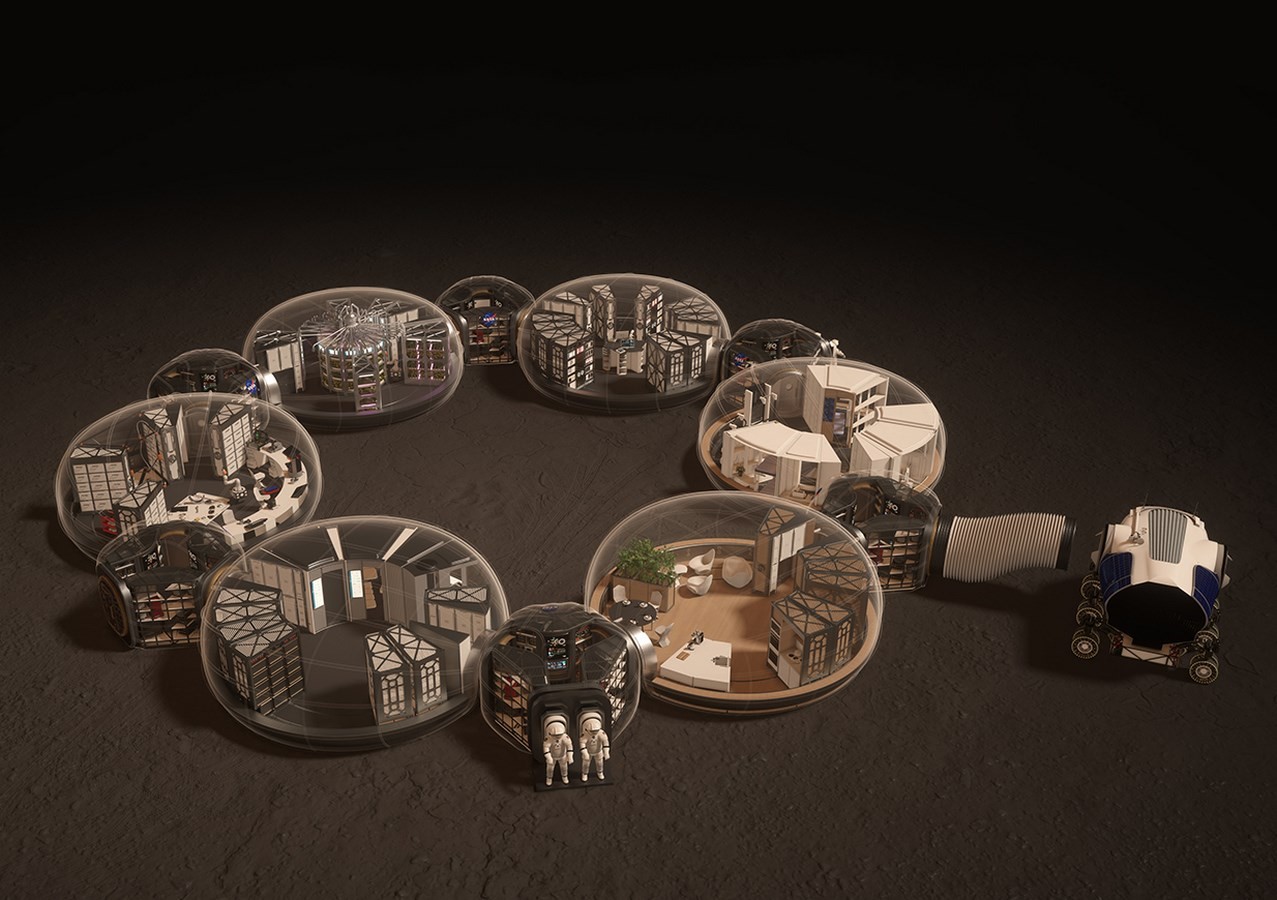
11. Al Hamra Tower
Location: Kuwait
Status: Completed in 2011
The Al Hamra Tower is the world’s tallest structure to have a continuous stone façade. The building has a distinctive form in response to the harsh climatic conditions. The design eliminates all south-facing offices while providing 270 degrees-wide view of the waters around.


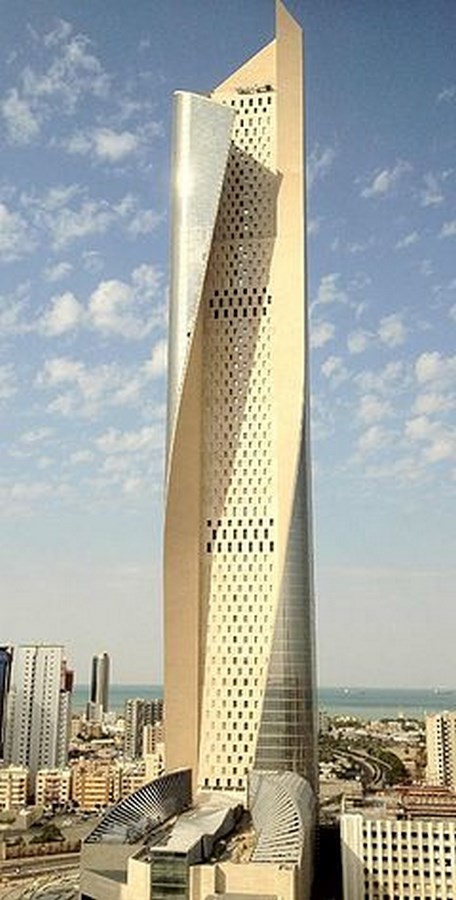
12. Montreal Tower
Location: Canada
Status: Completed in 2018
As a part of the Olympic Stadium constructed for the Summer Games in 1976, the Montreal Tower was built to support the stadium’s retractable roof. Post completion, the tower reaches a height of 175m and an inclination of almost 45 degrees, making it the world’s tallest inclined structure.
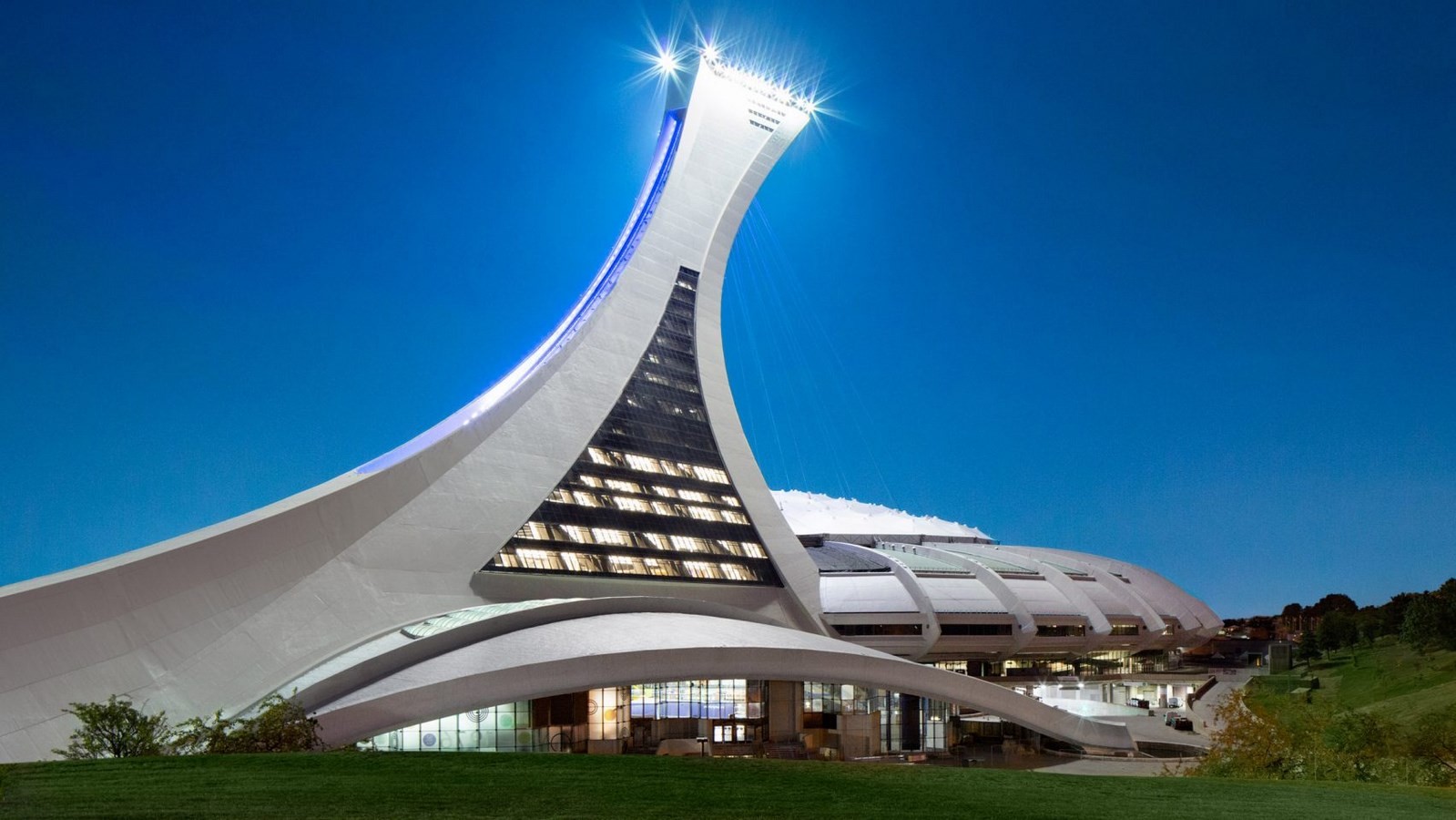

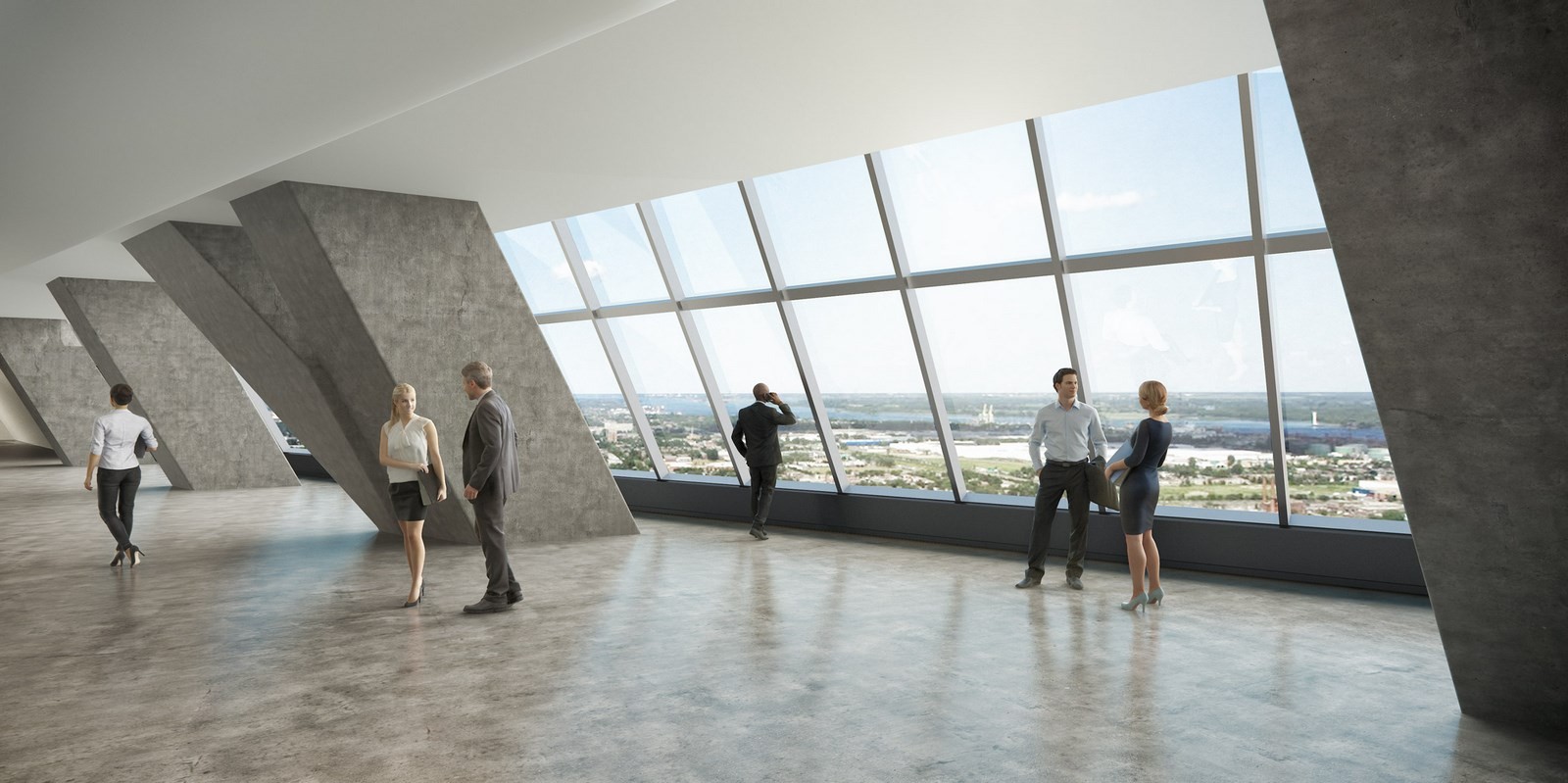
13. Millau Viaduct
Location: Millau, France
Status: Completed in 2004
Spanning a total of 2460m with eight consecutive cable stays, the Millau Viaduct is the highest cable-stayed bridge structure in the world. The mast reaches a height of 343m above the ground. Designed by British architect Norman Foster, the bridge consumed 1,27,000 cubic meters of concrete and 19,000 tonnes of steel.

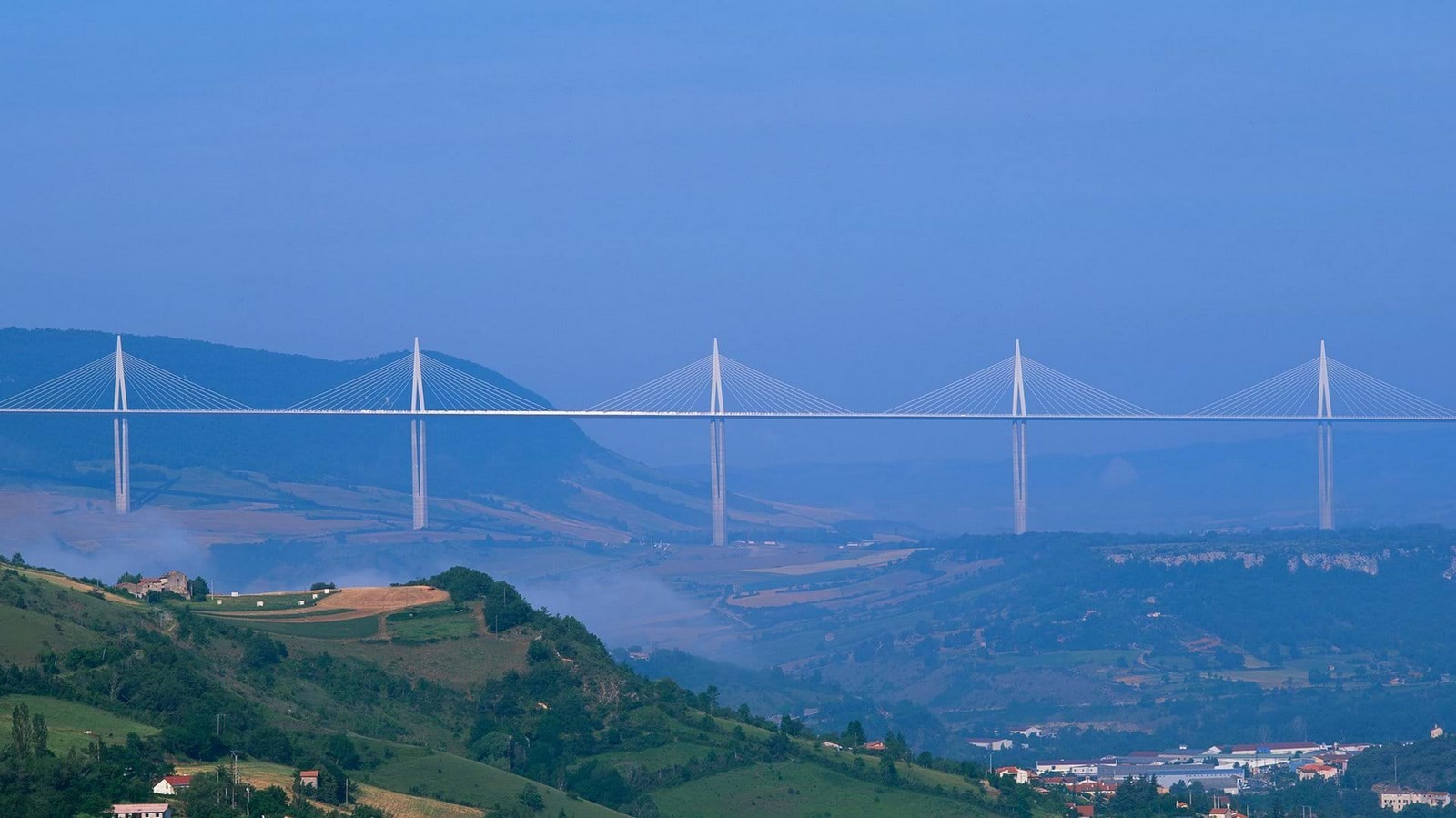
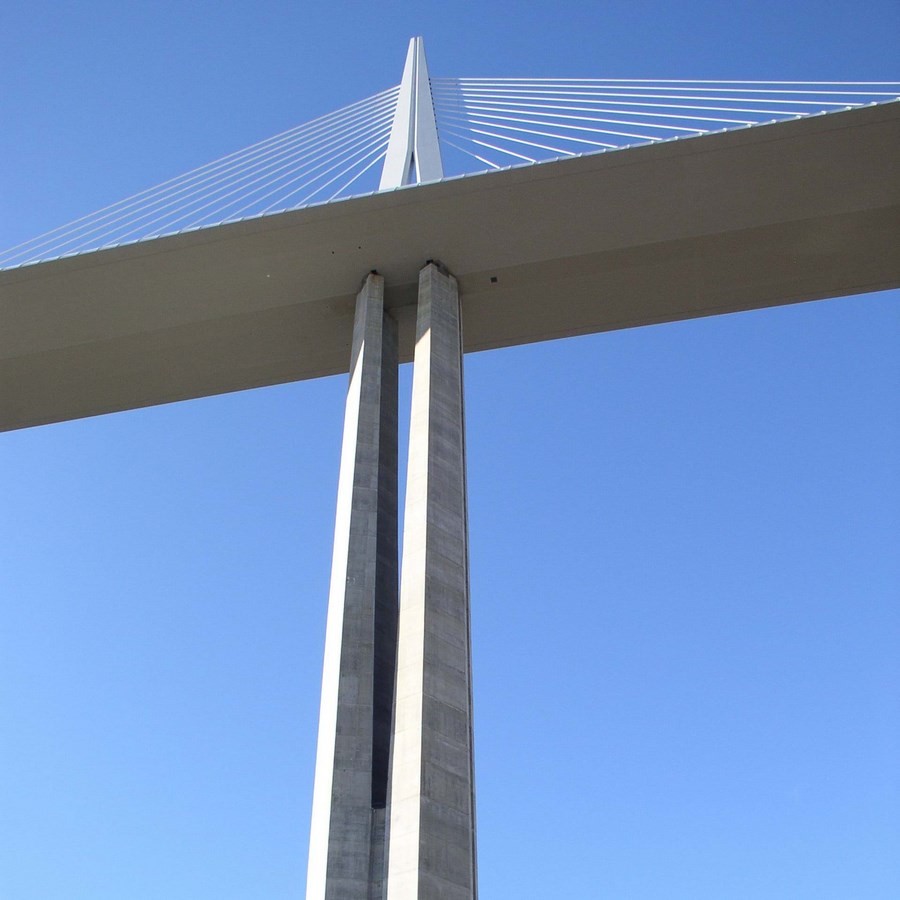
14. Channel Tunnel
Location: England
Status: Completed in 1994
Connecting England and France, the Channel Tunnel runs 50 km underwater, making it the world’s longest undersea tunnel. The average depth of the tunnel is 50m below the seabed and reaches the lowest point at 75m.
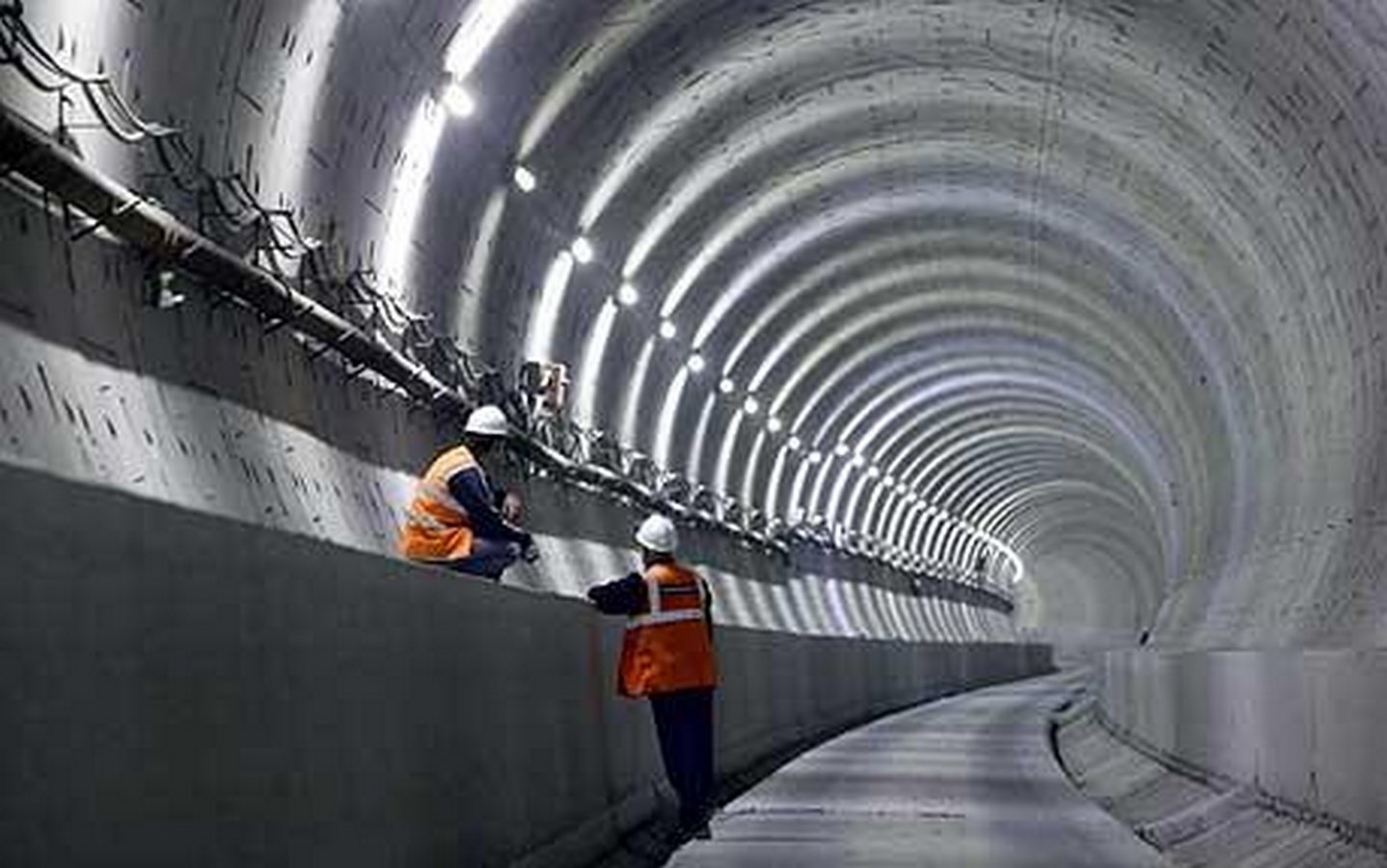

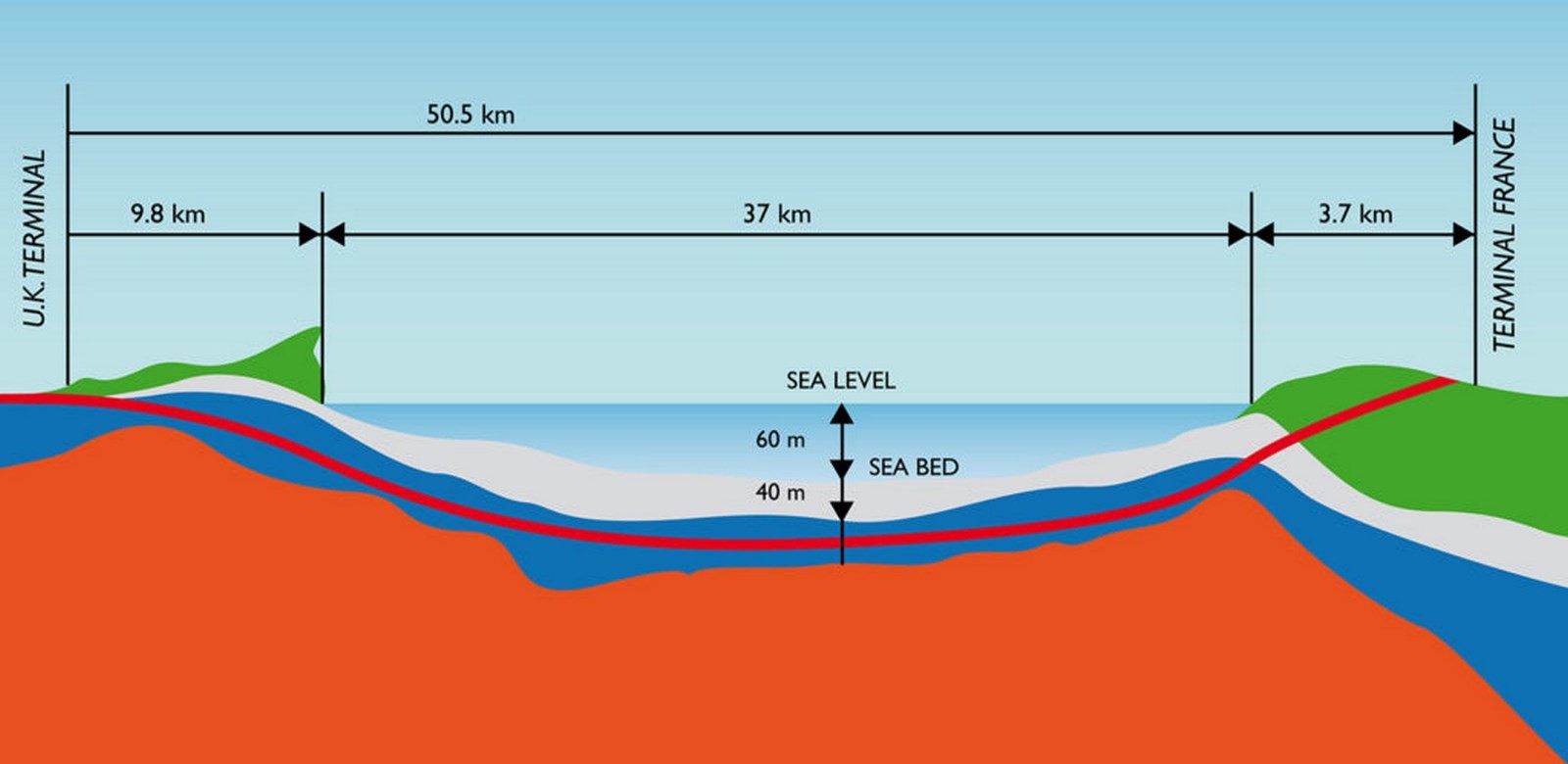
15. Hong Kong International Airport
Location: Hong Kong
Status: Completed in 1998
Designed by Forster and Partners, the Hong Kong International Airport is built entirely on the reclaimed piece of land. At the time of its opening, the airport’s terminal 1 was the biggest in the world, with two parallel runways 3,800m long and 60m wide.
